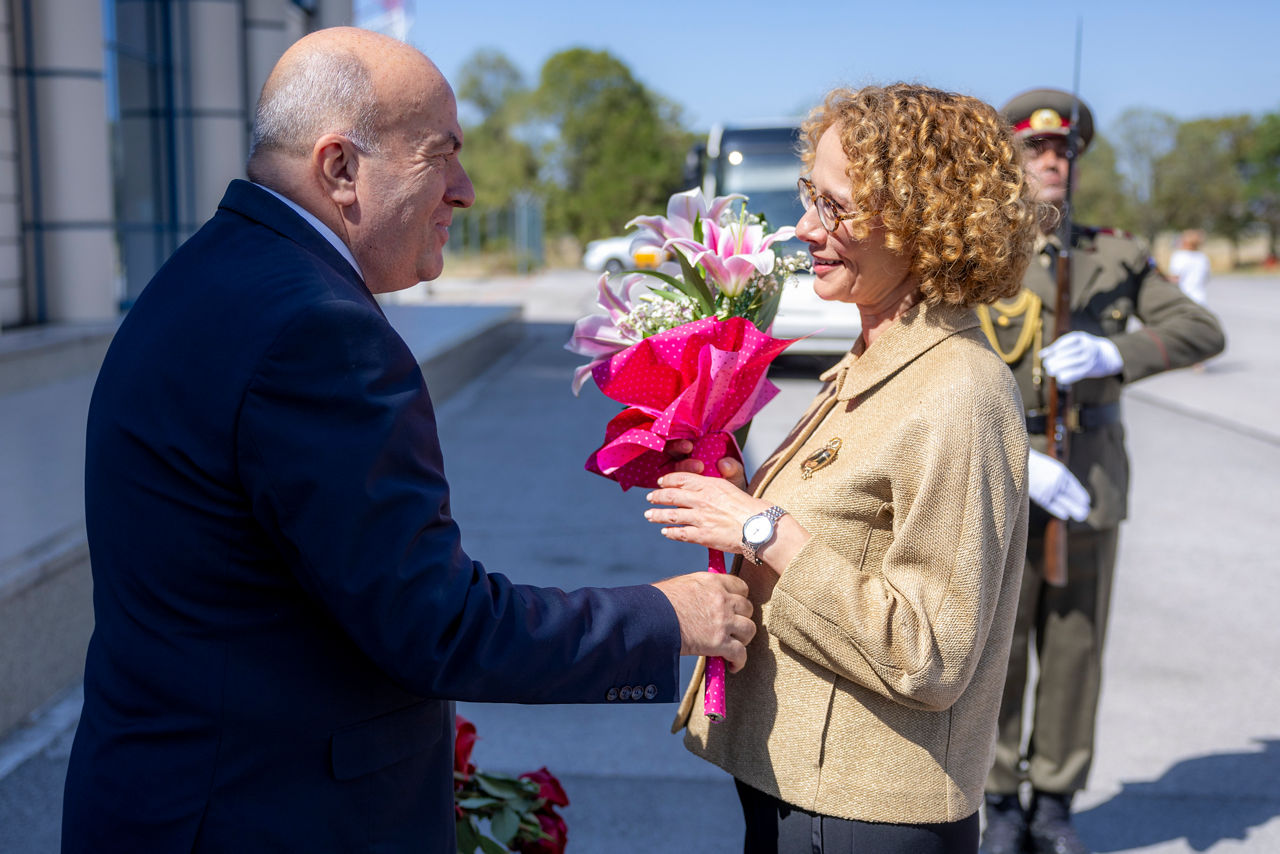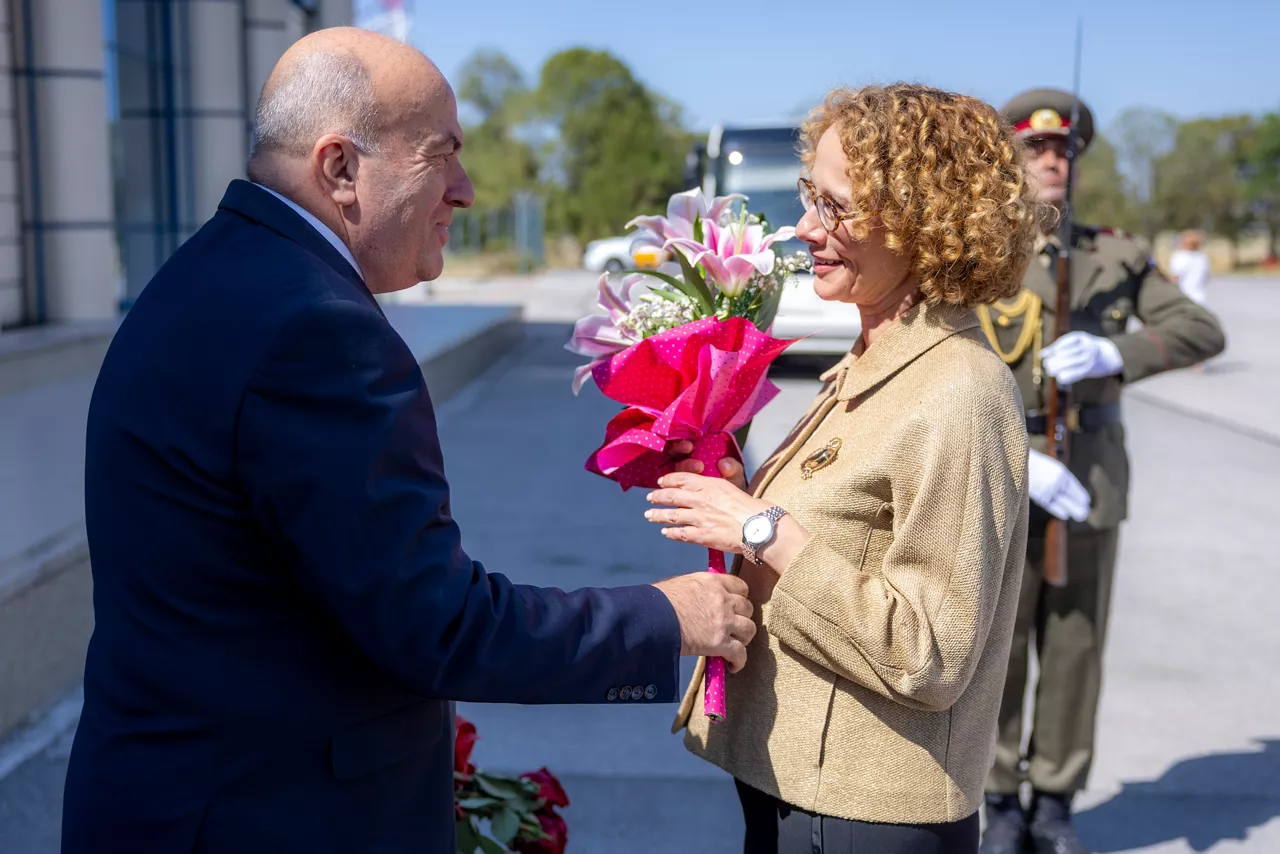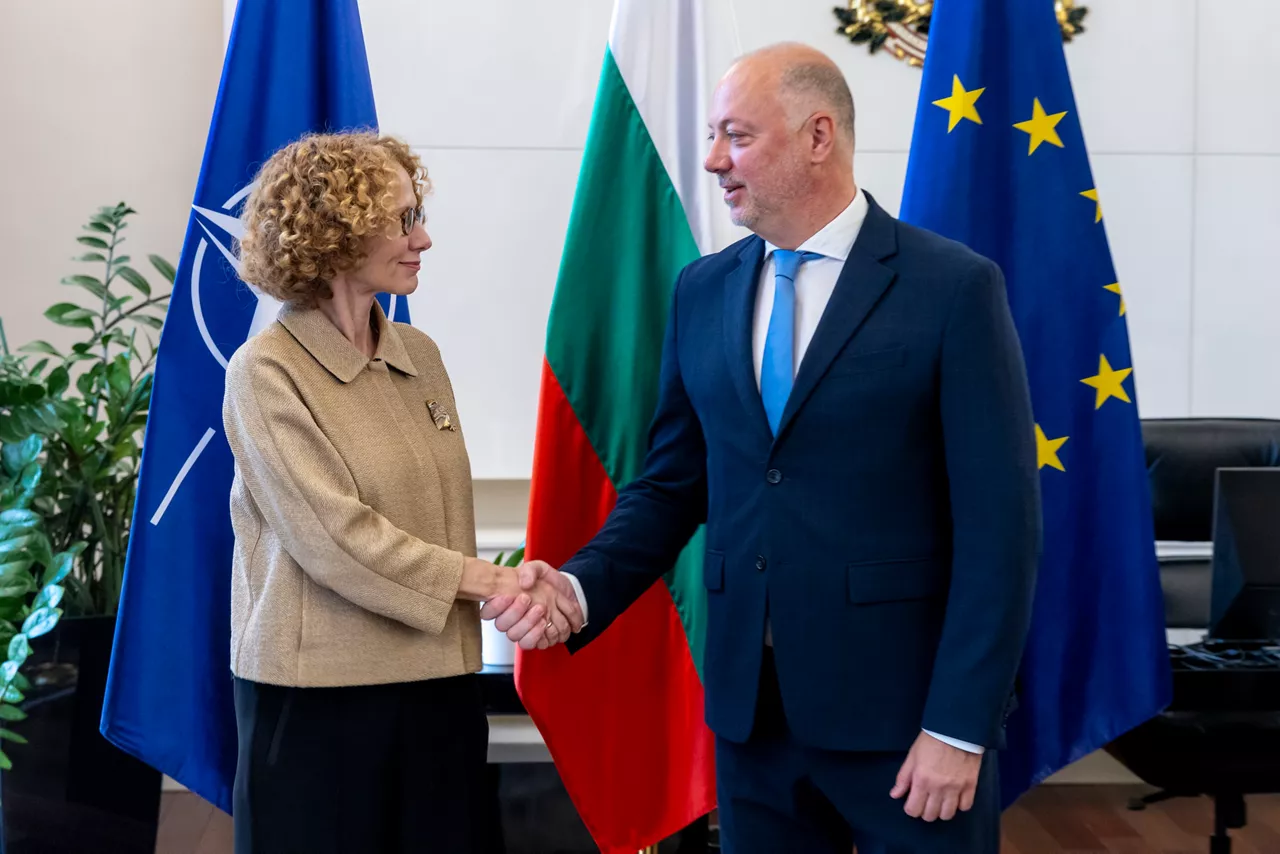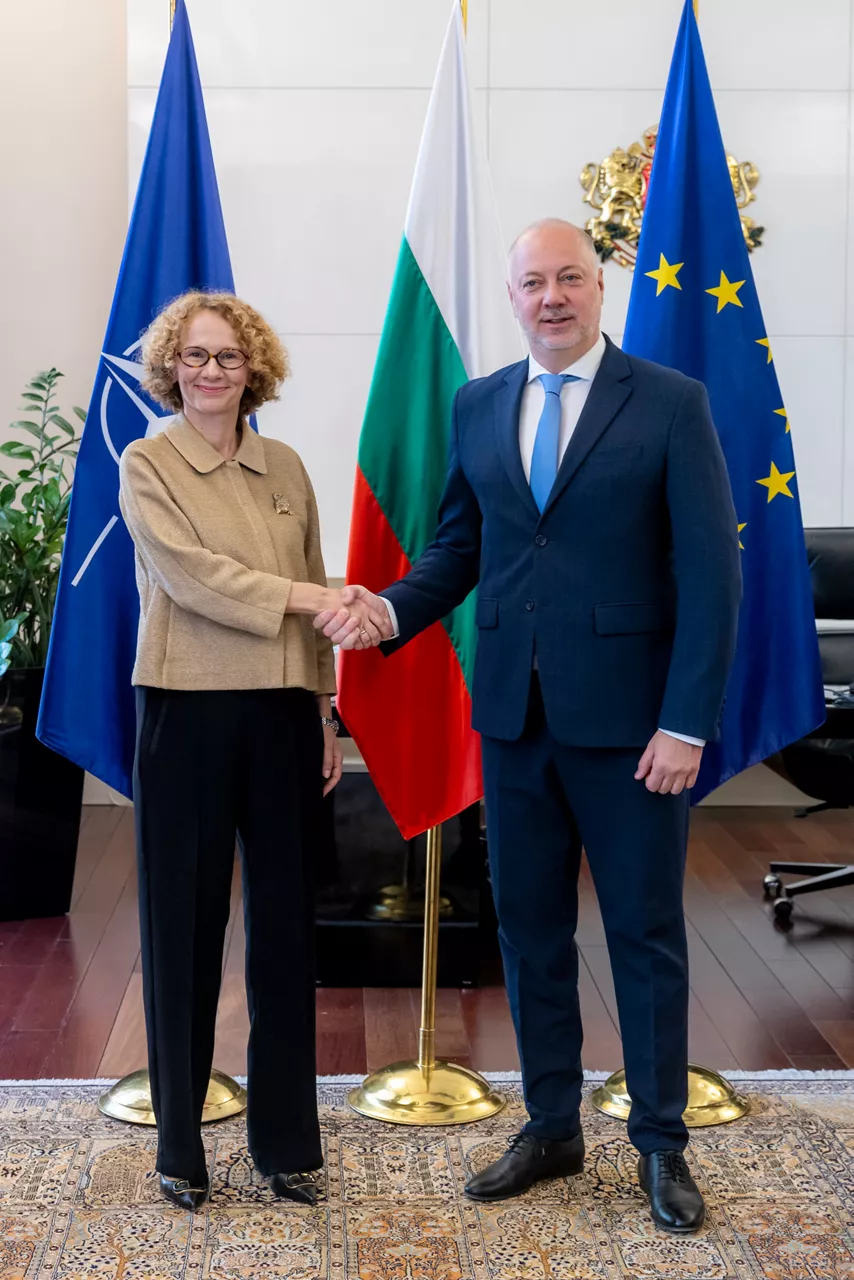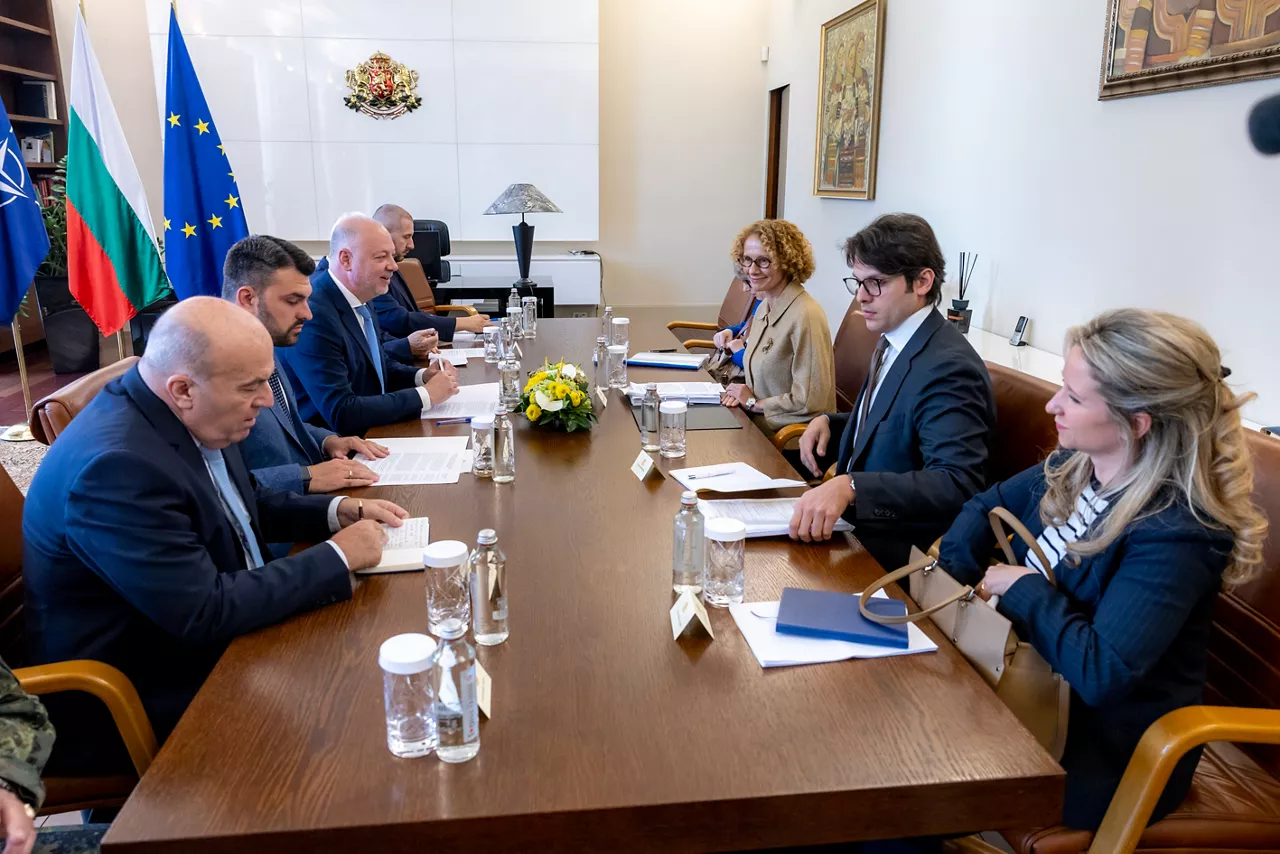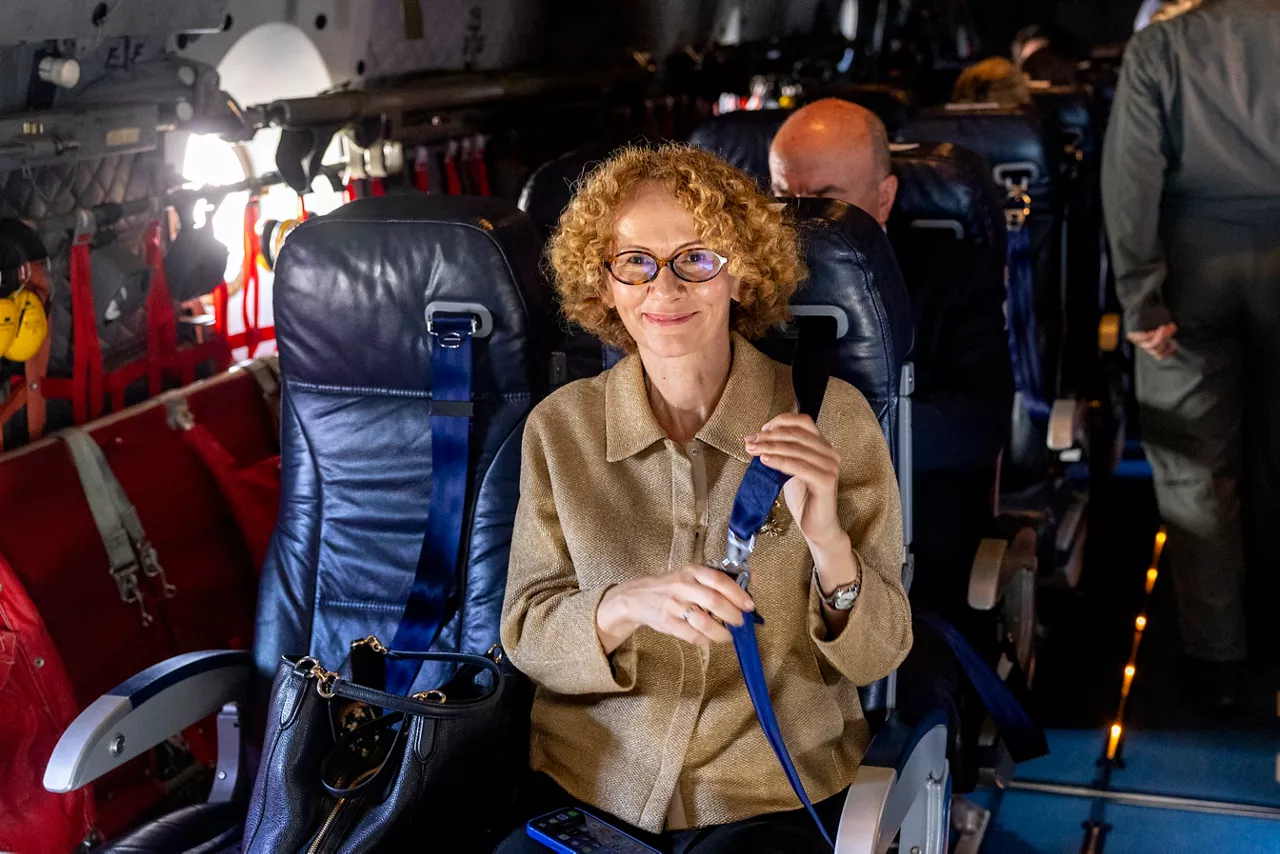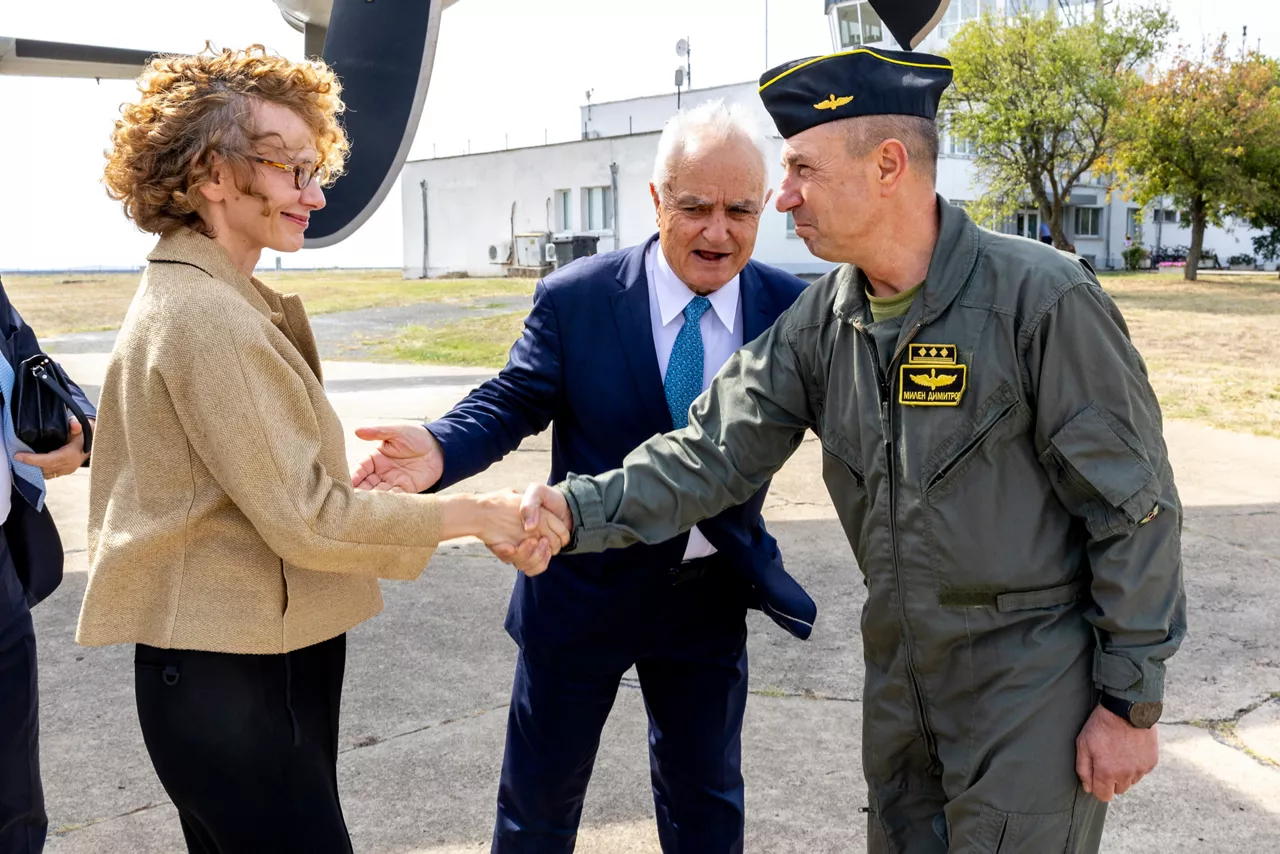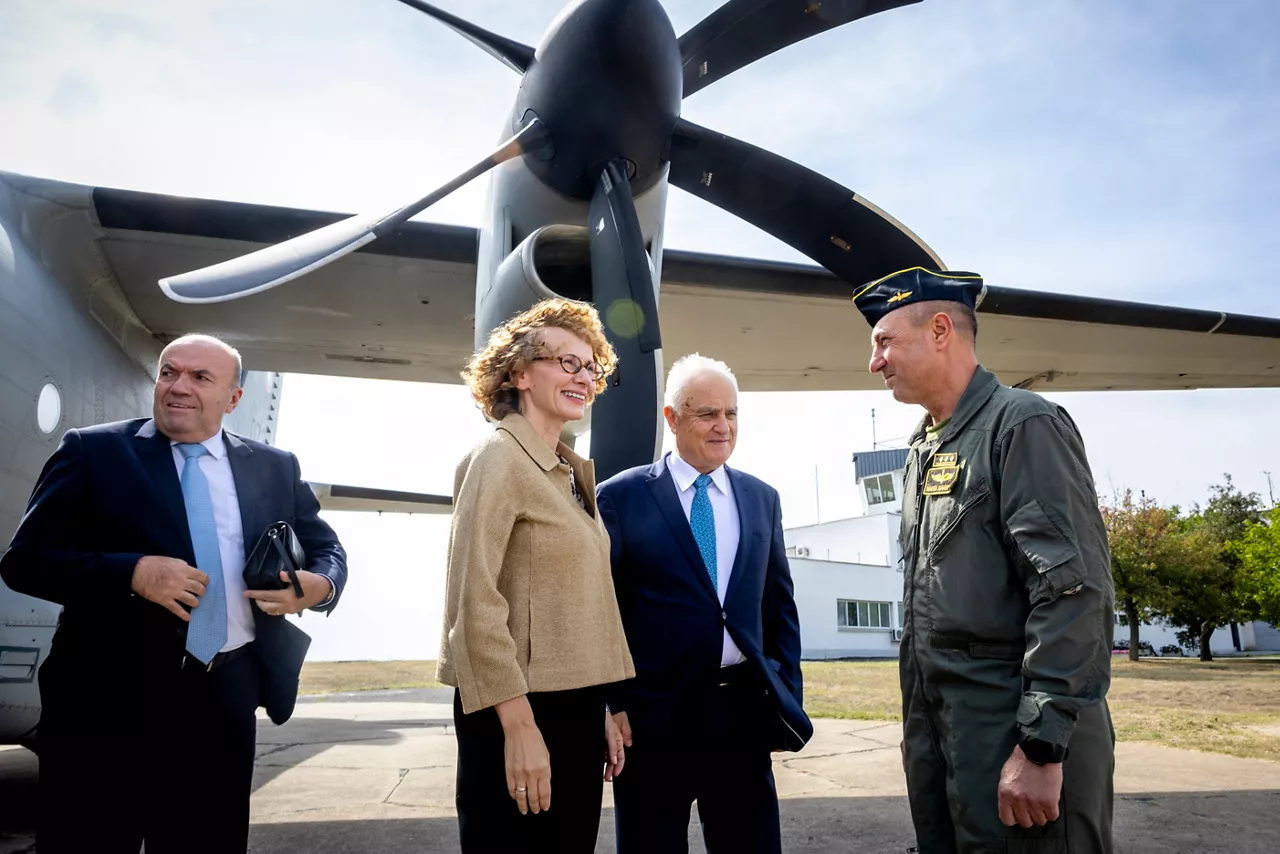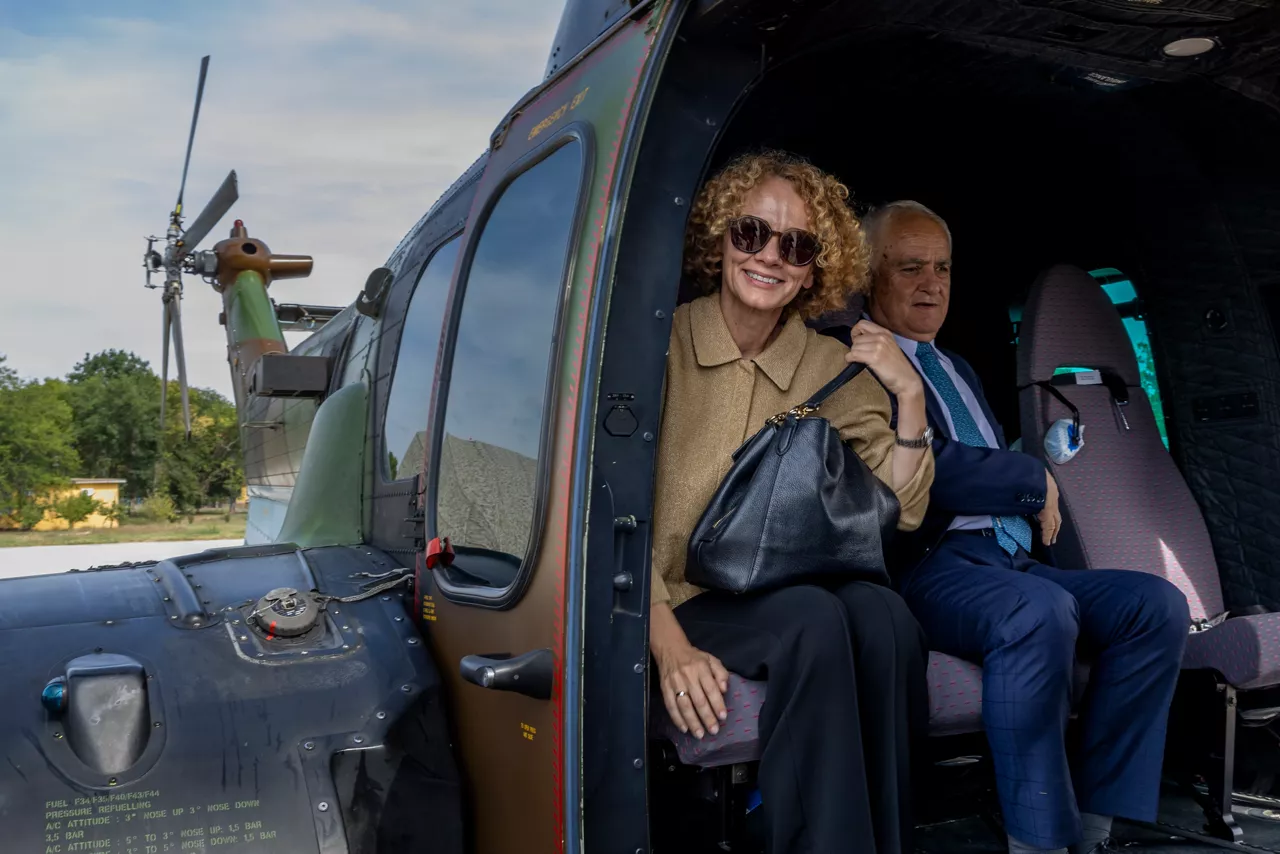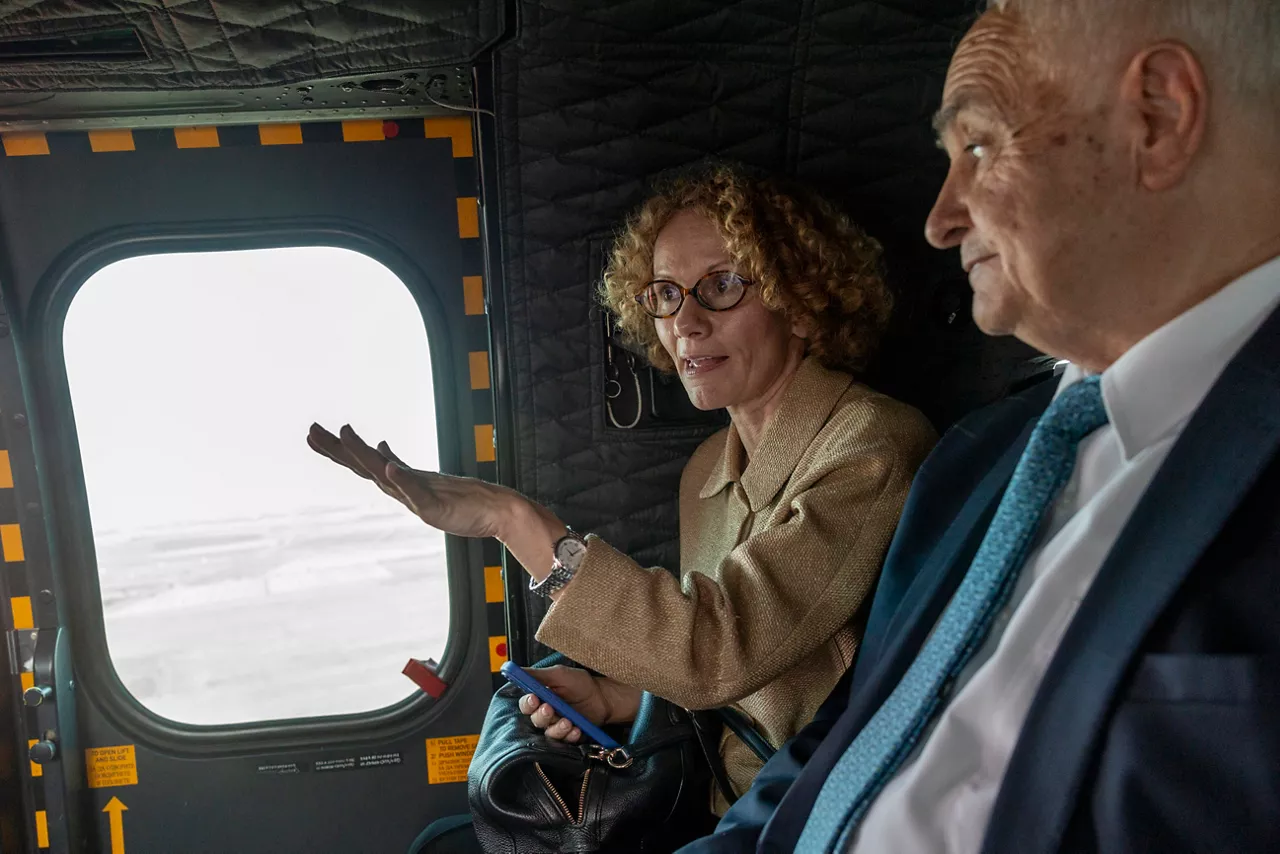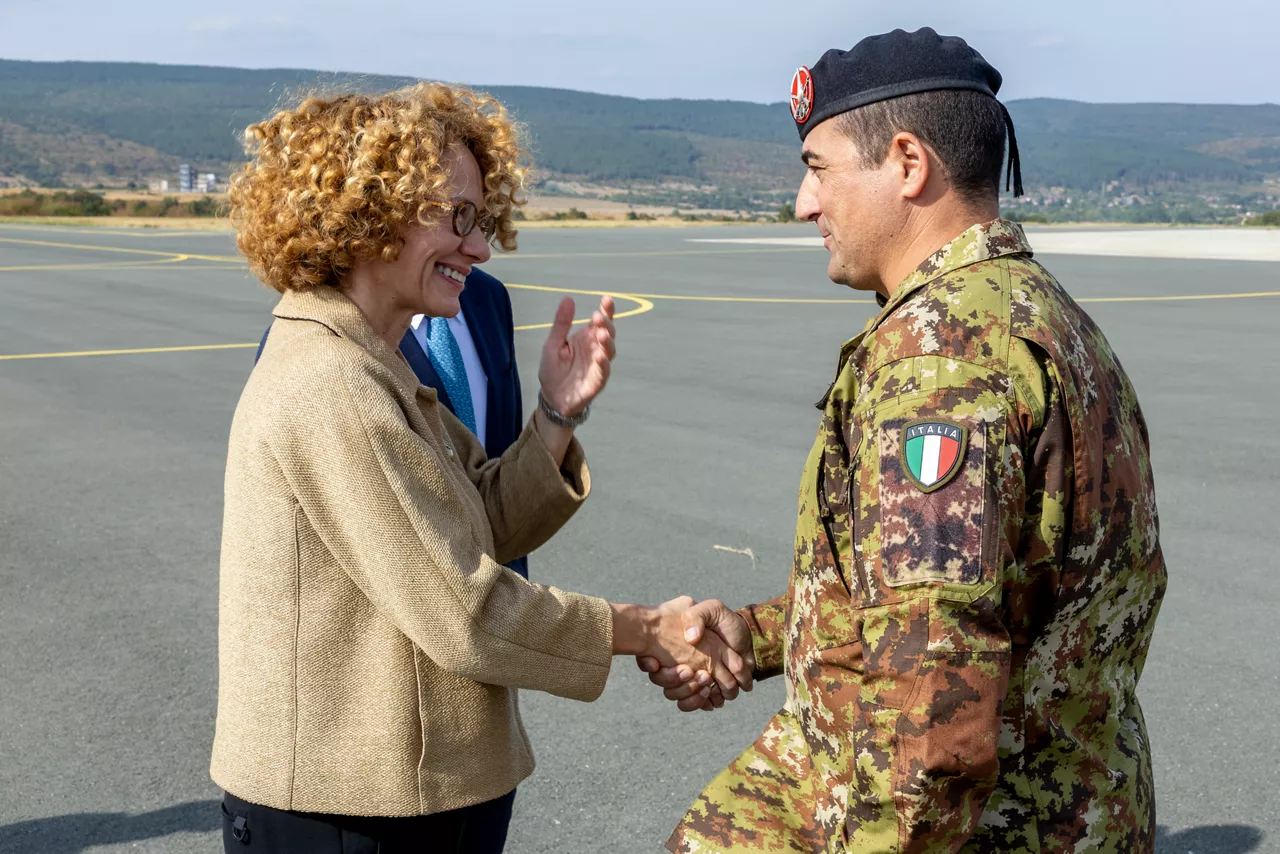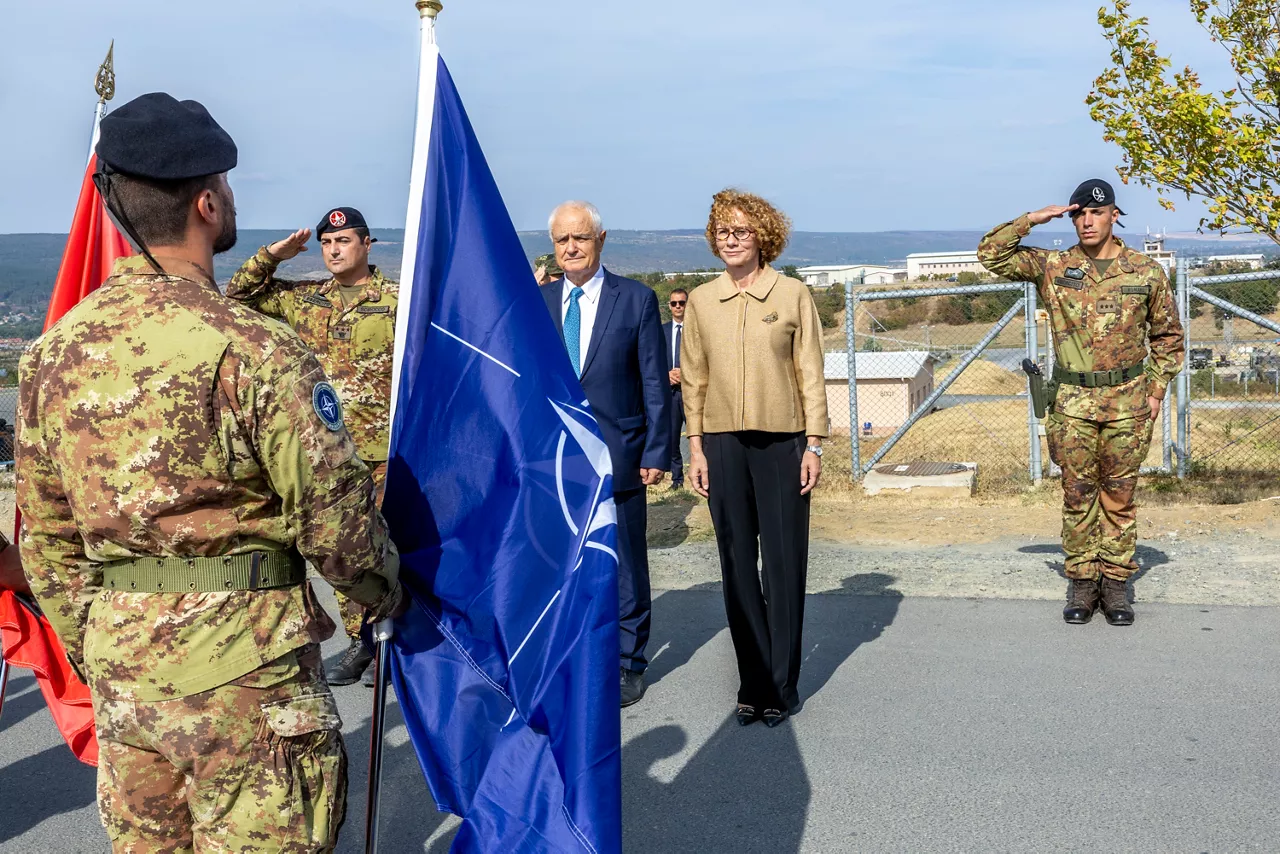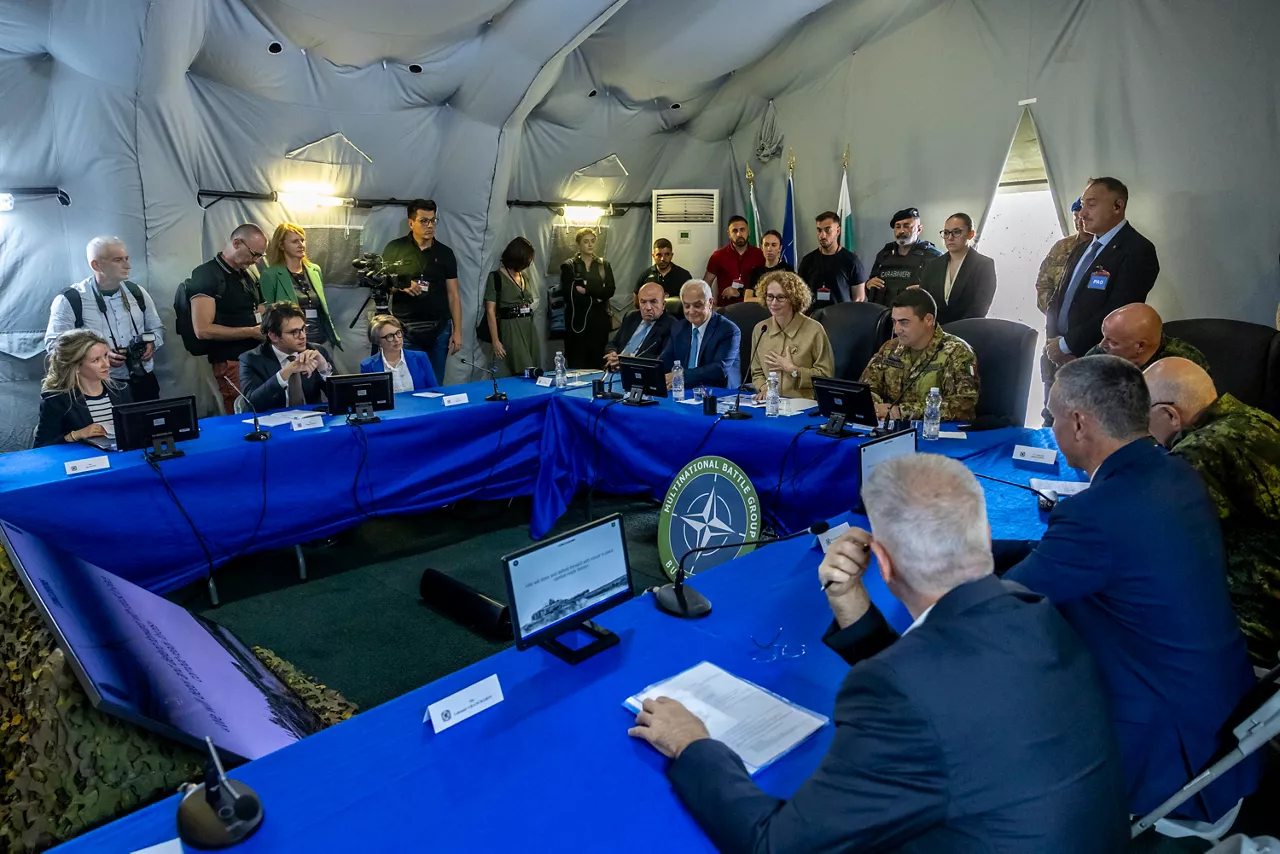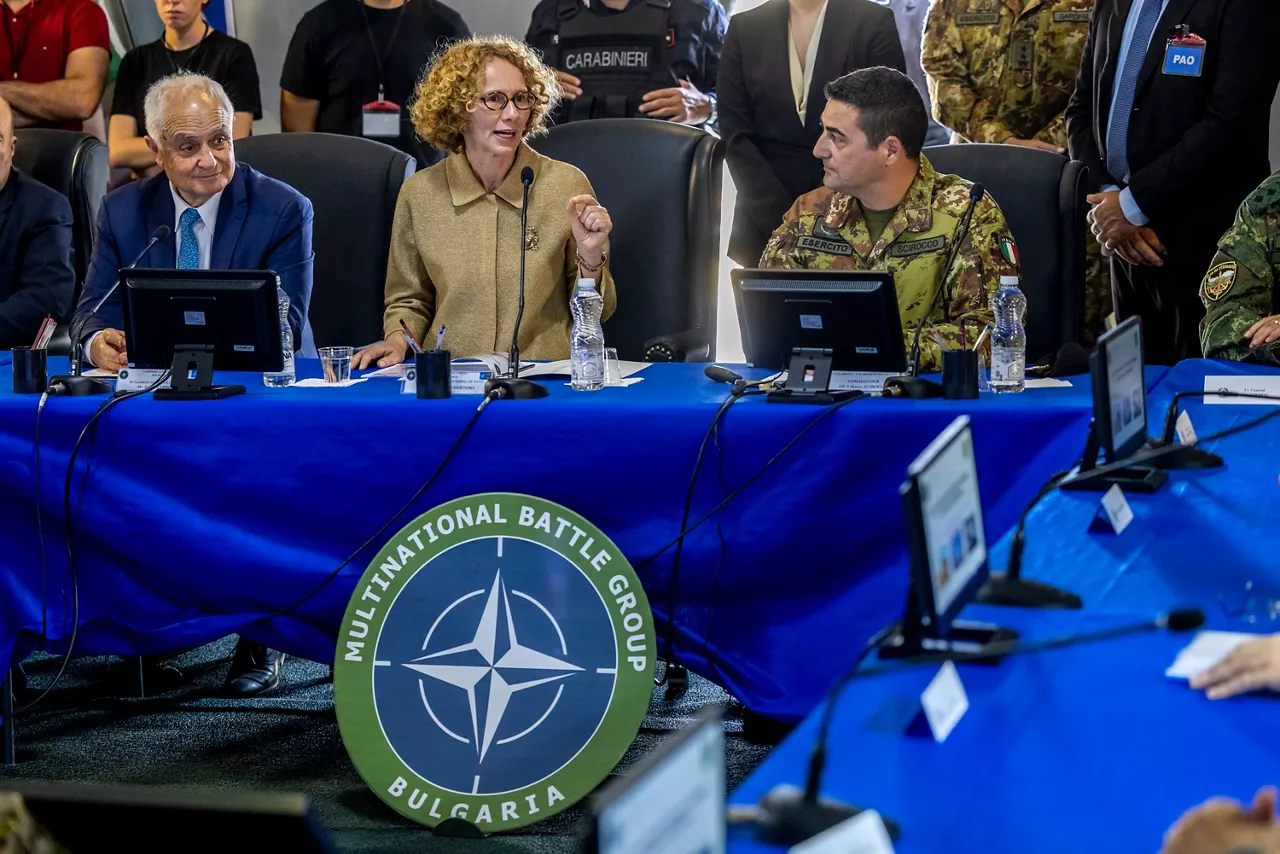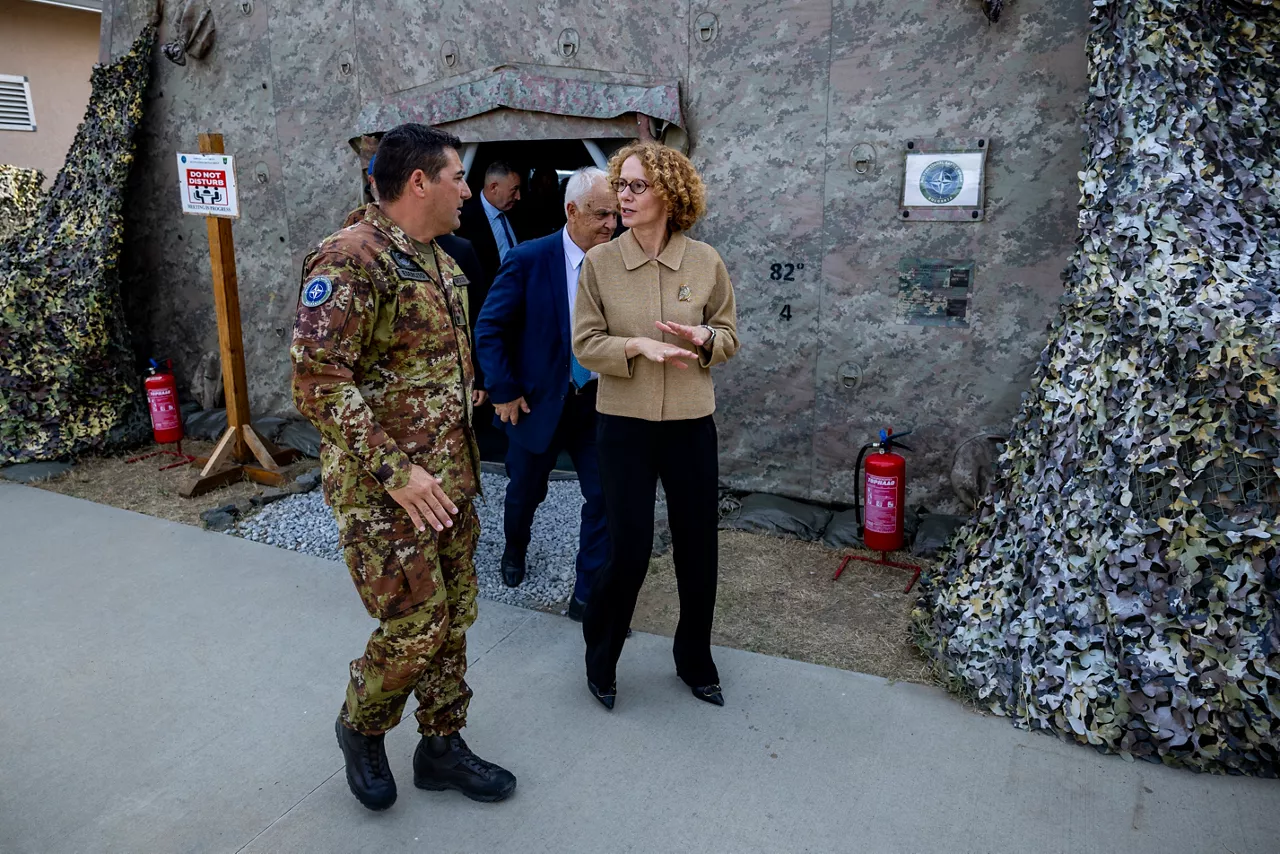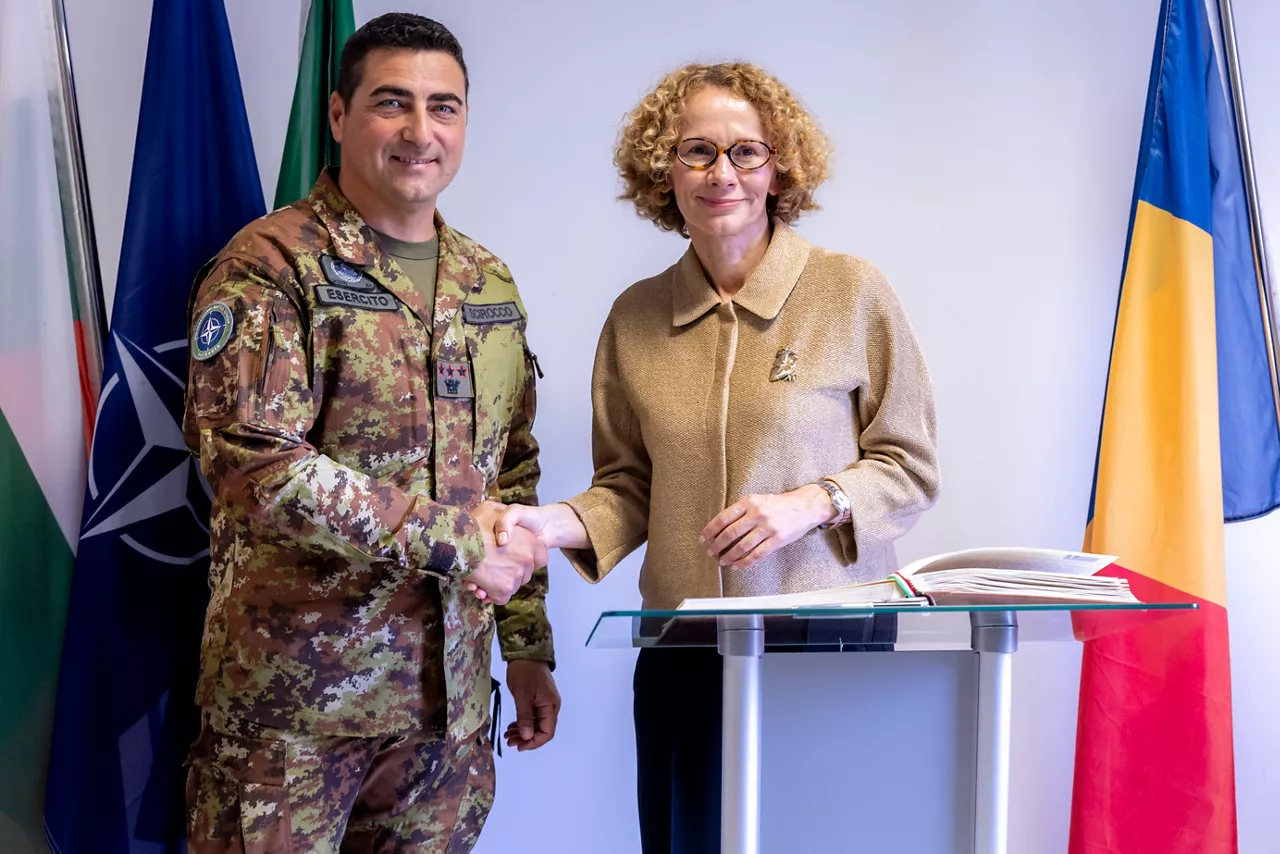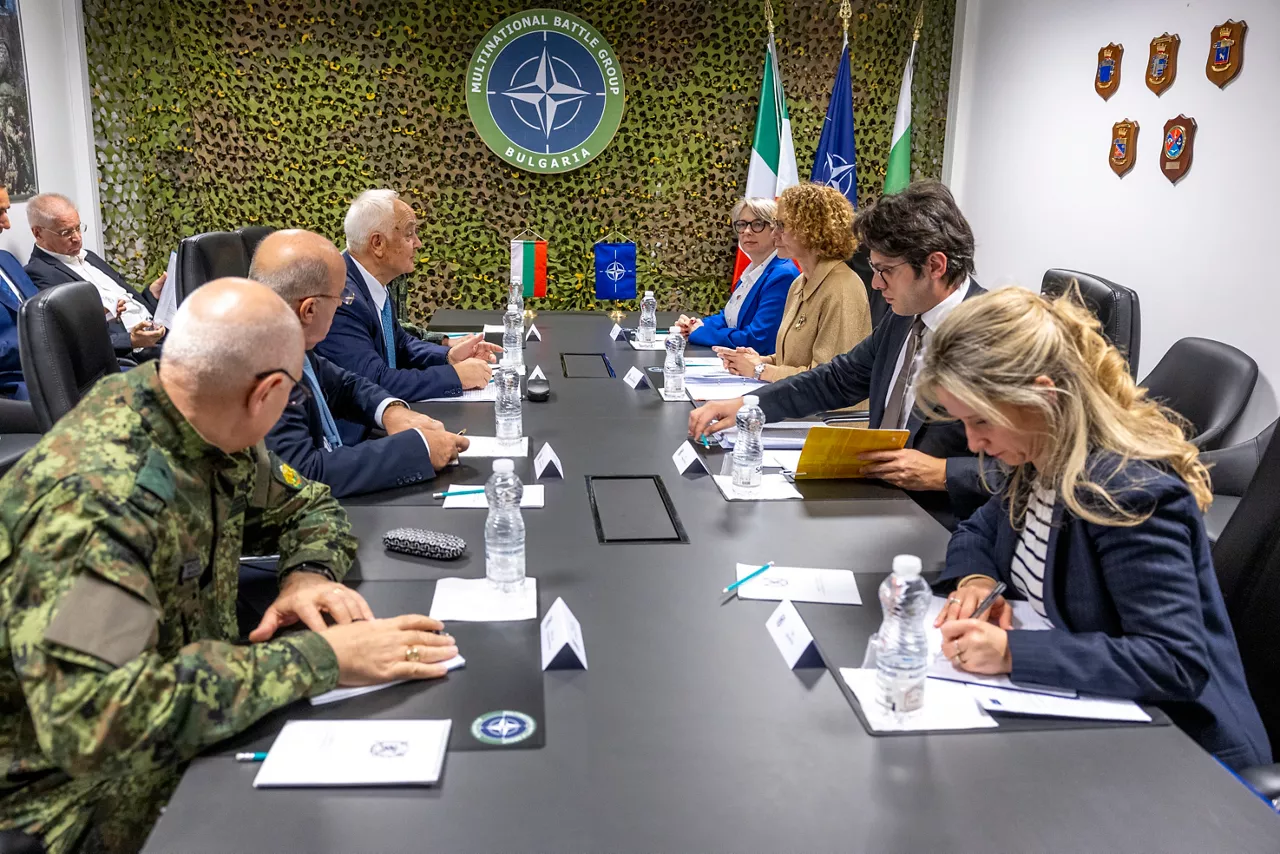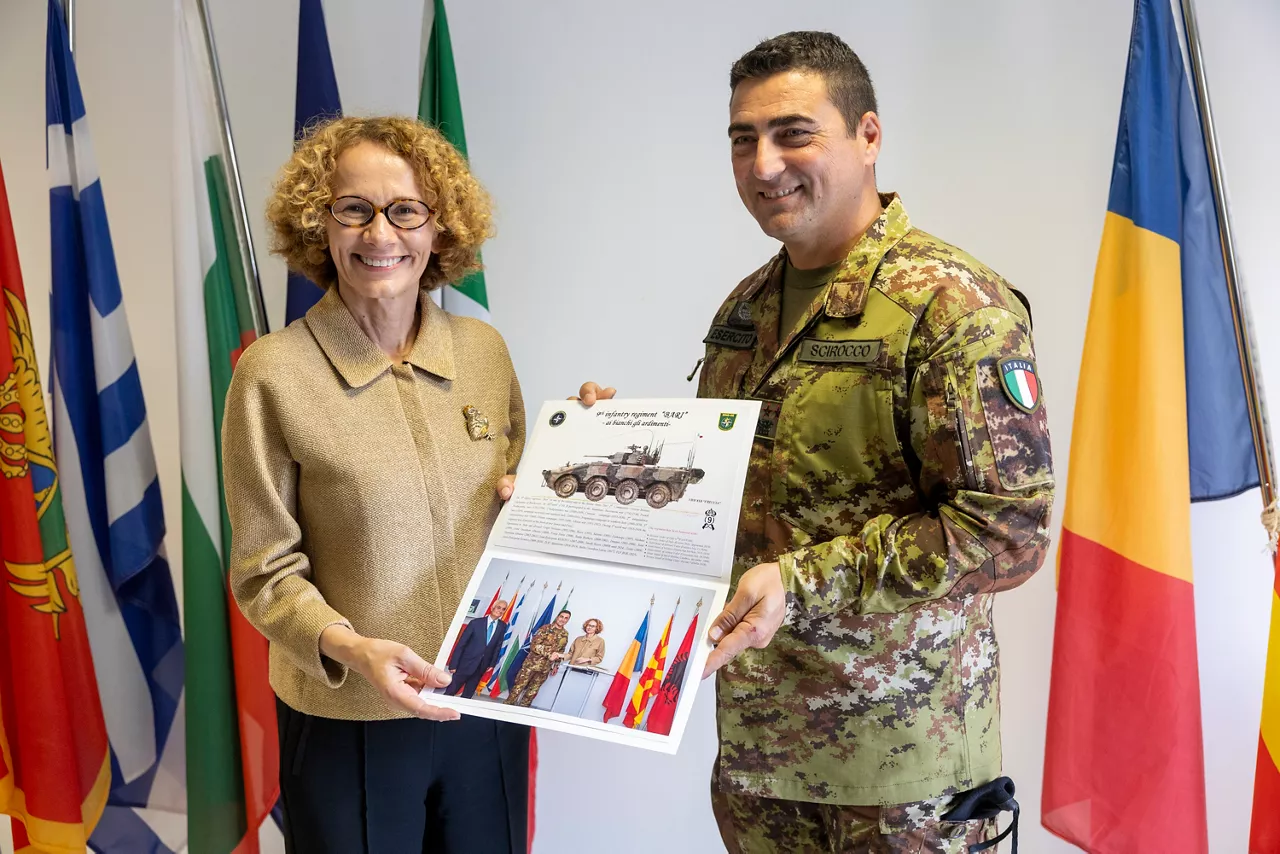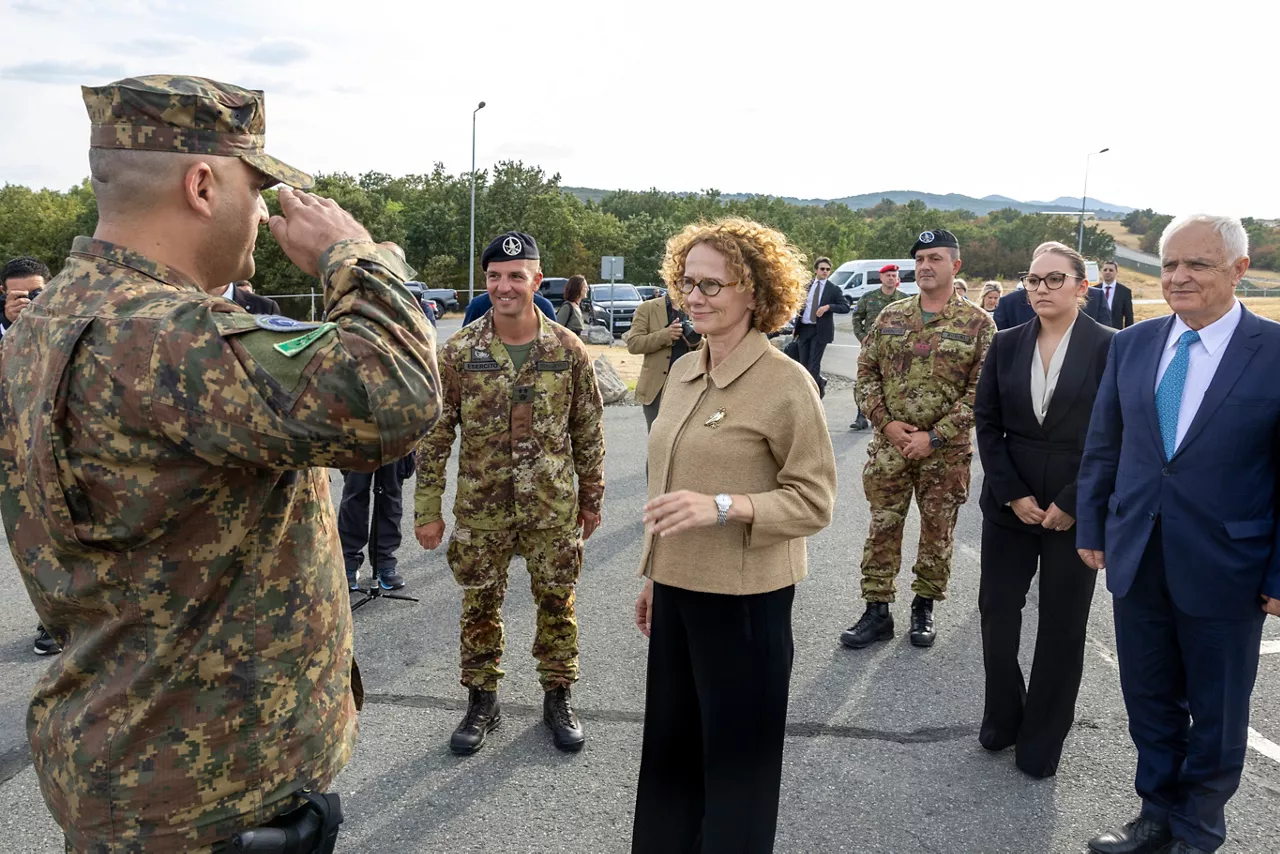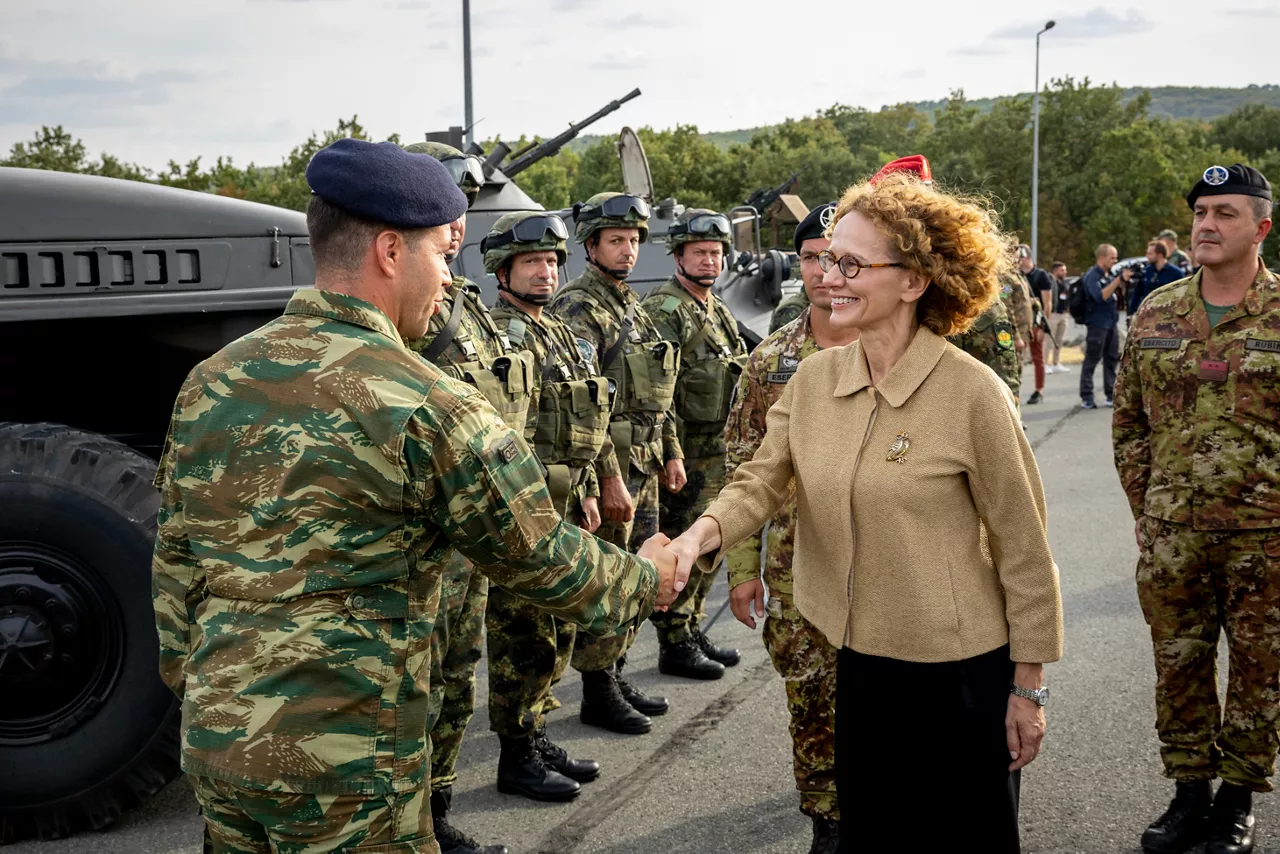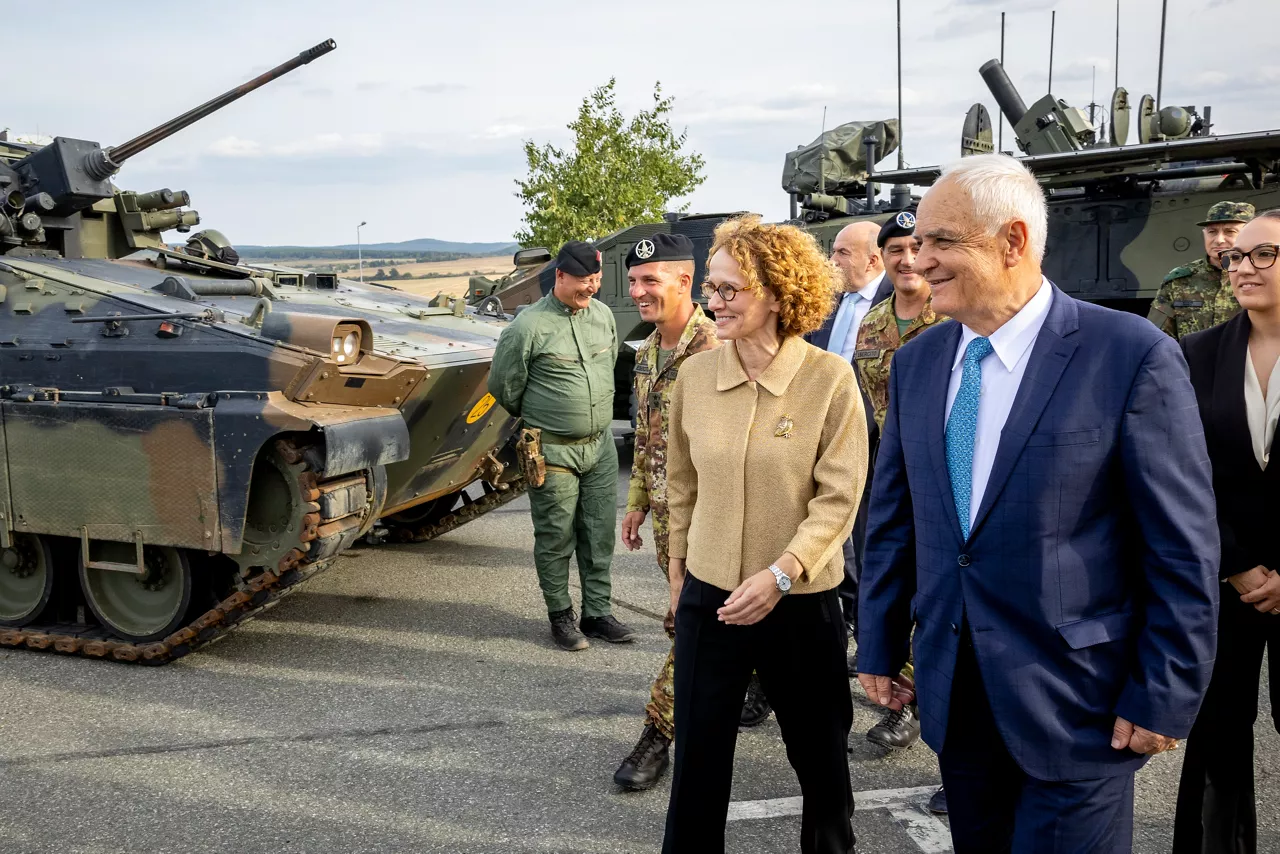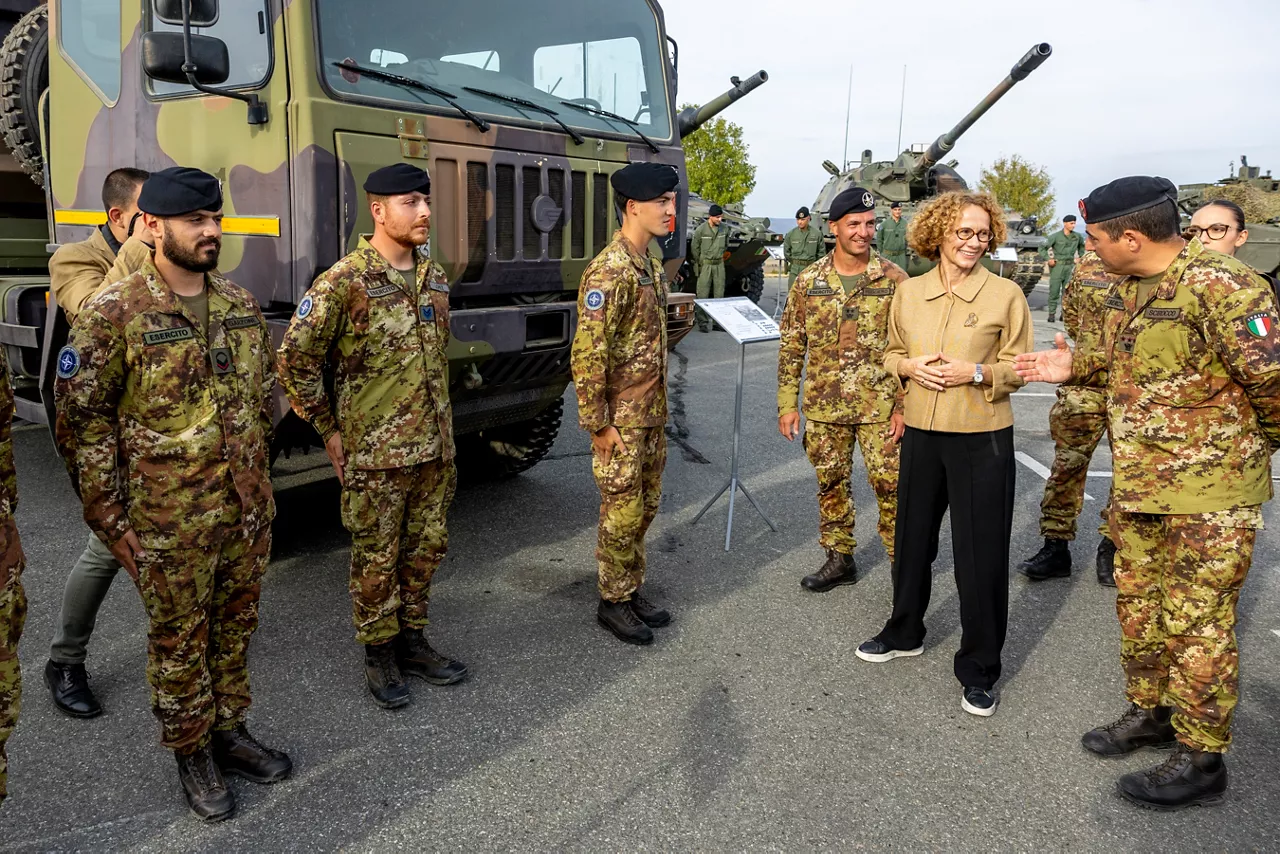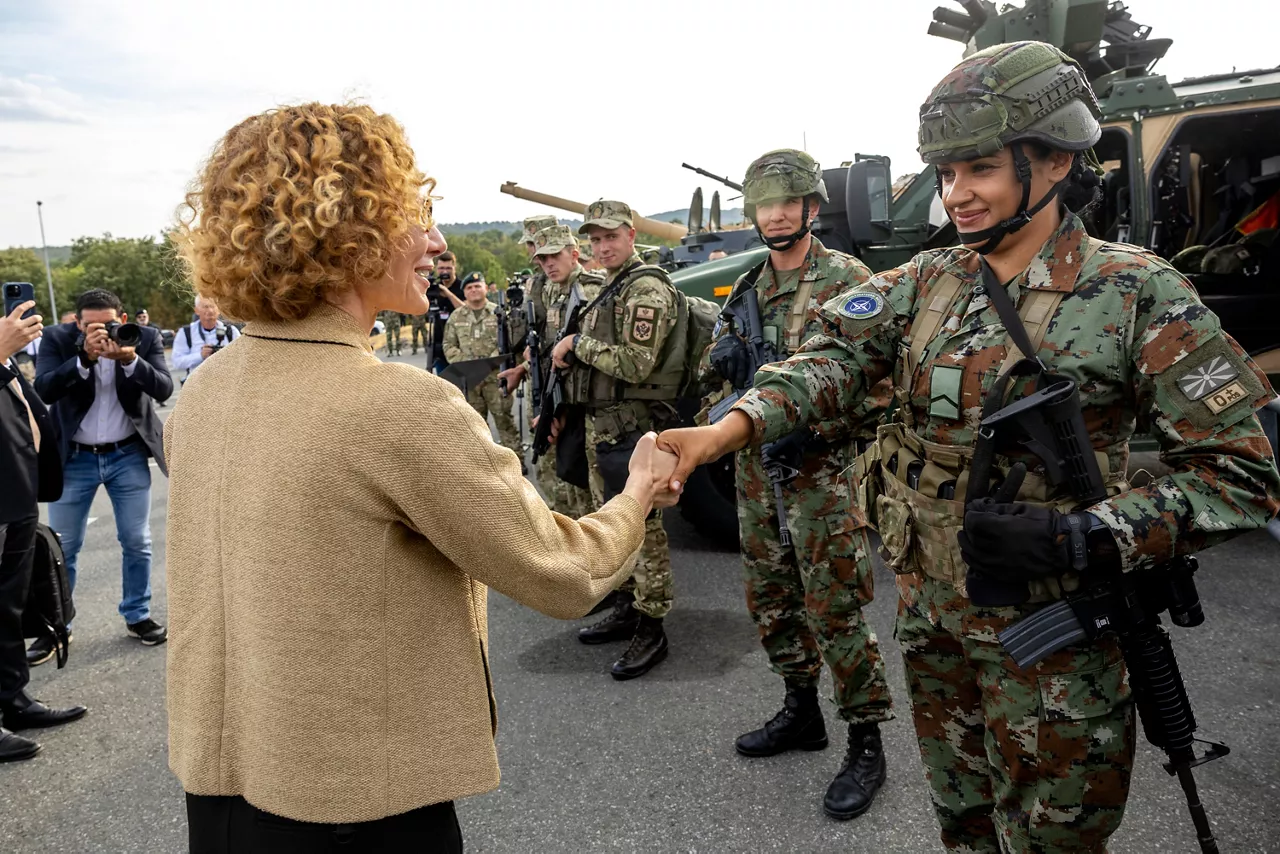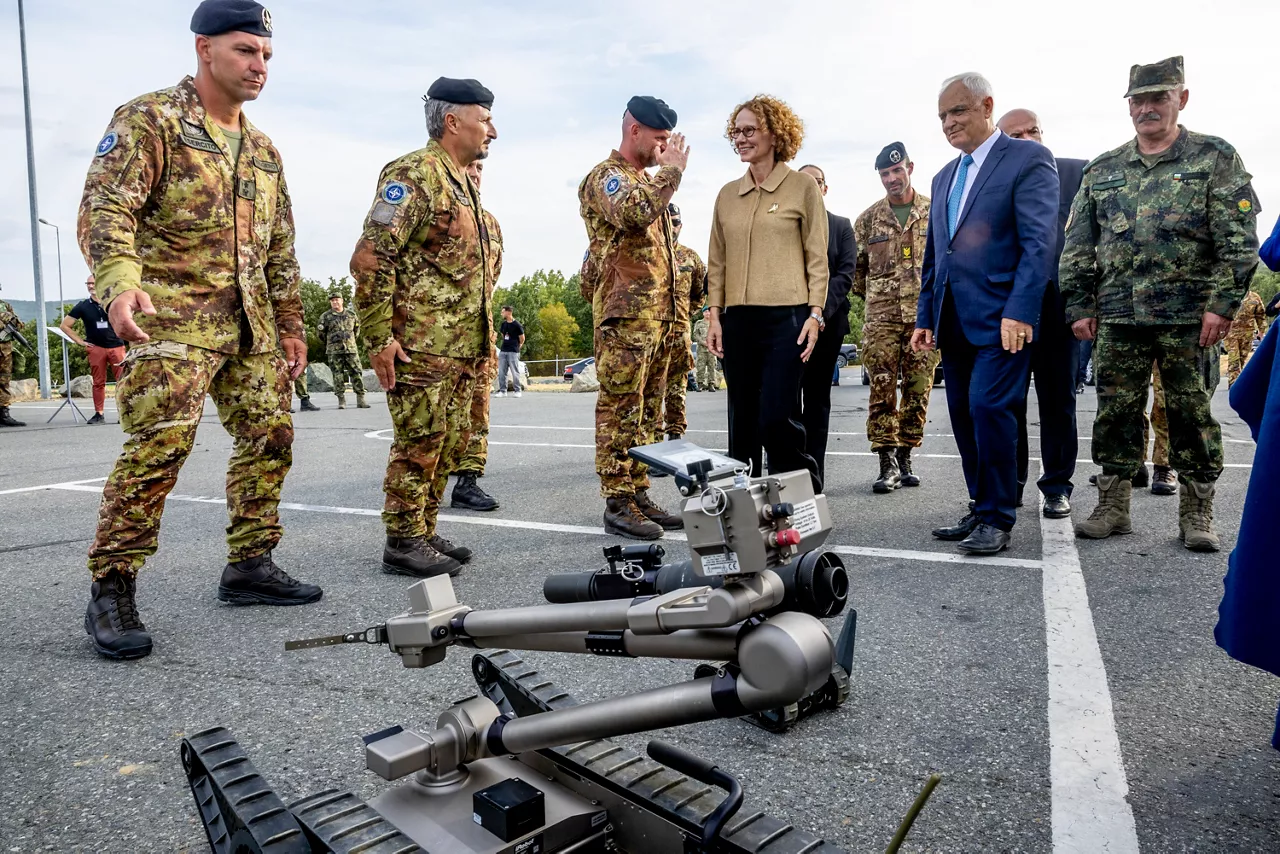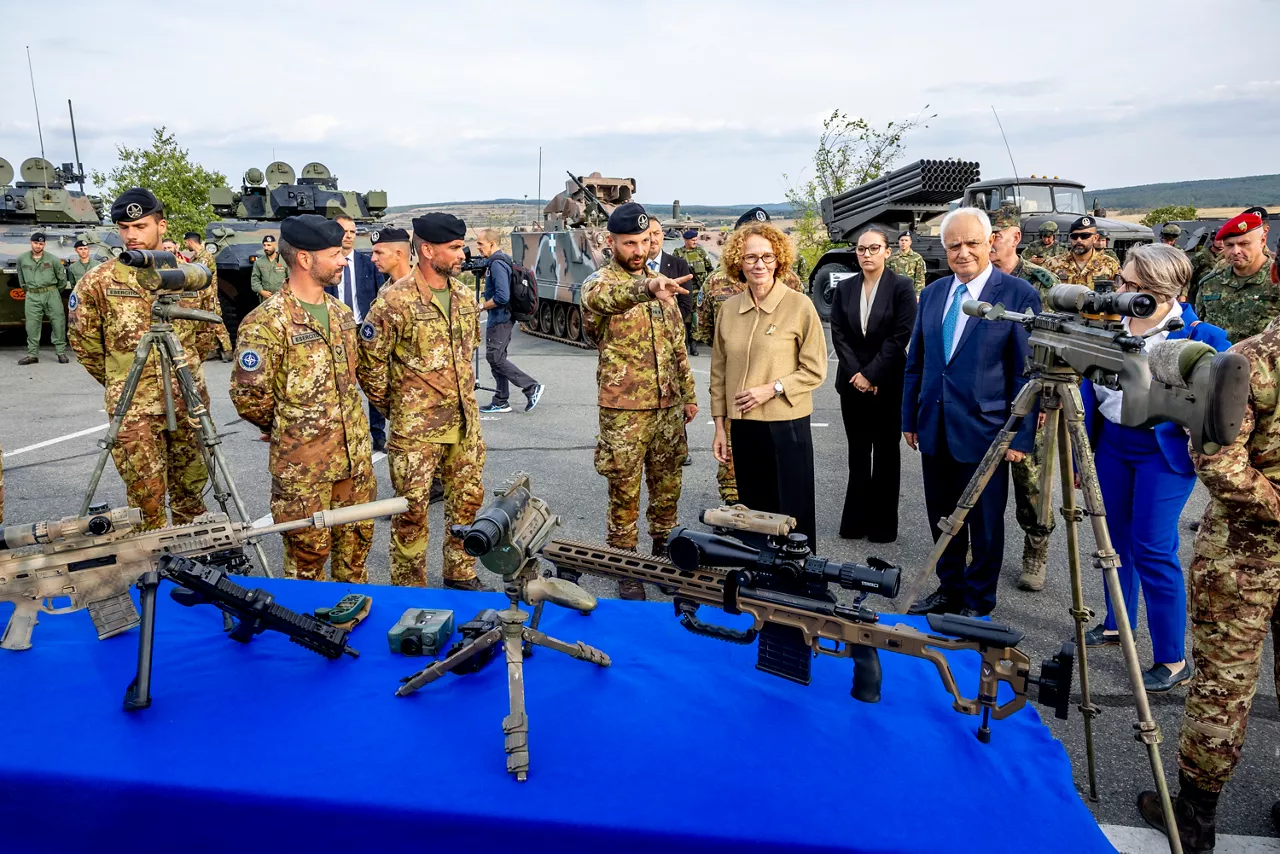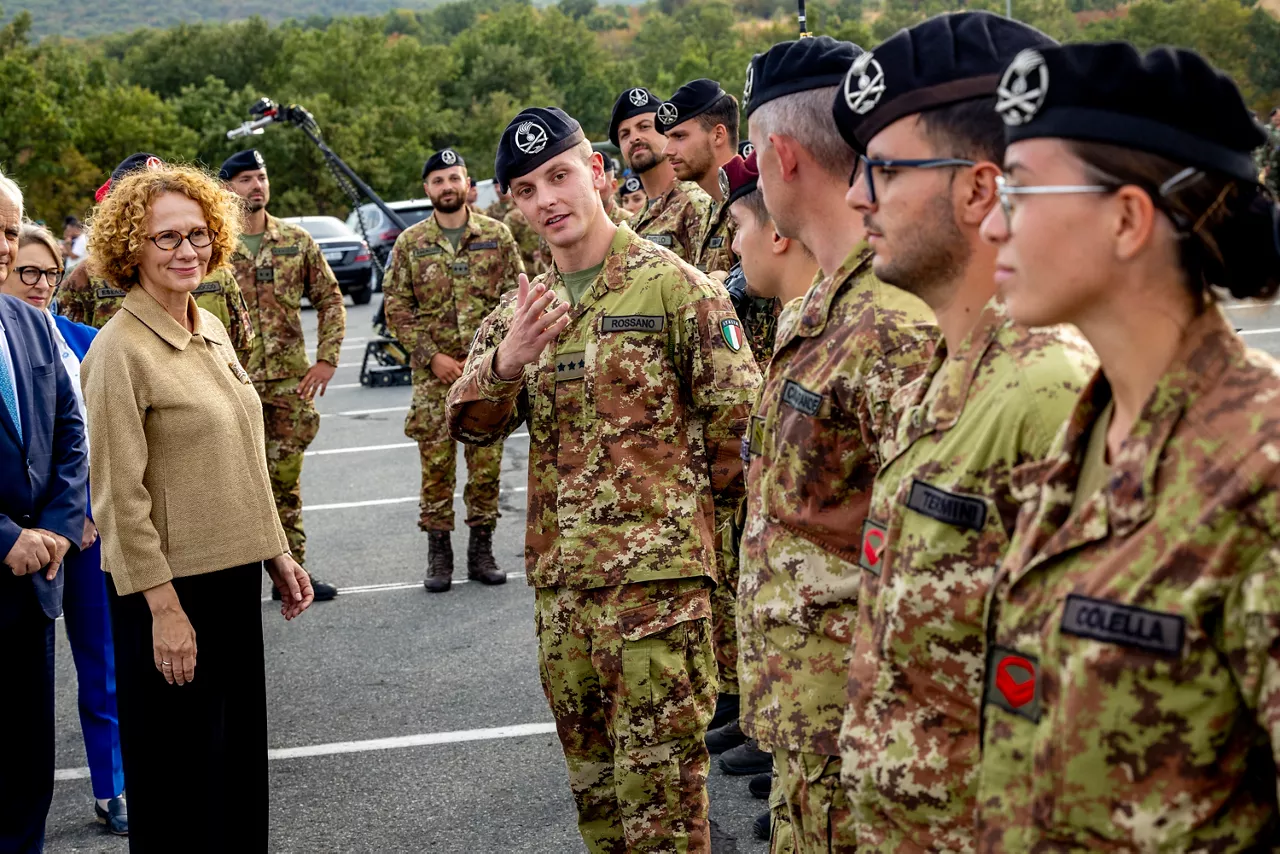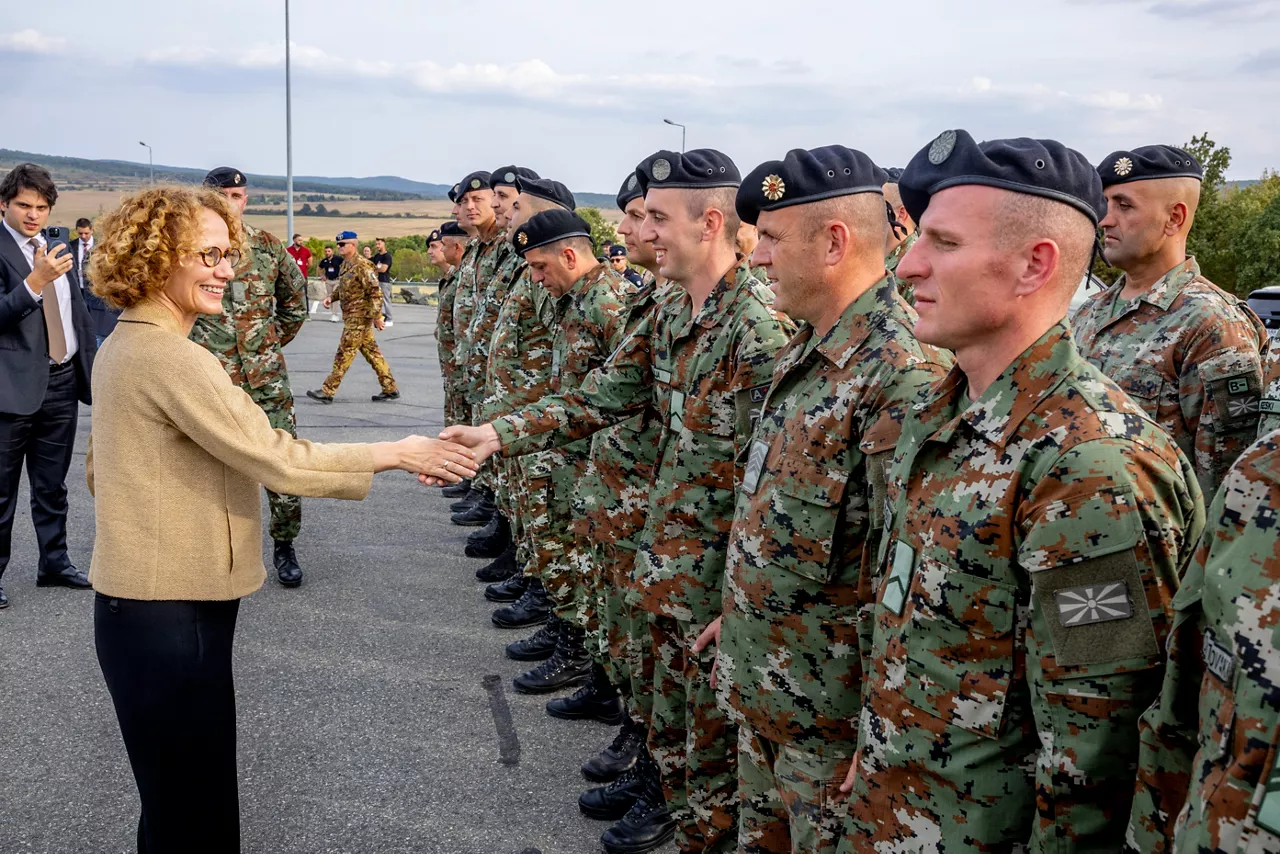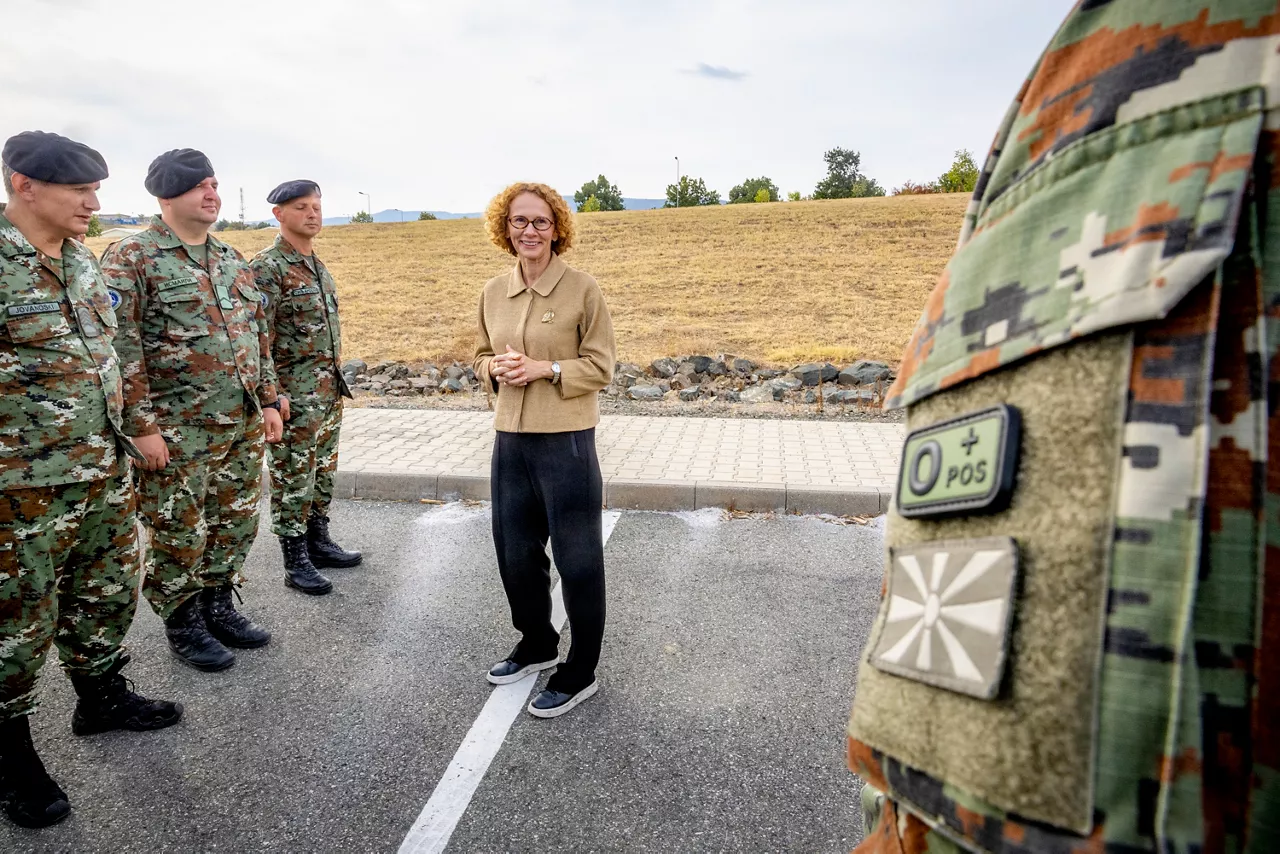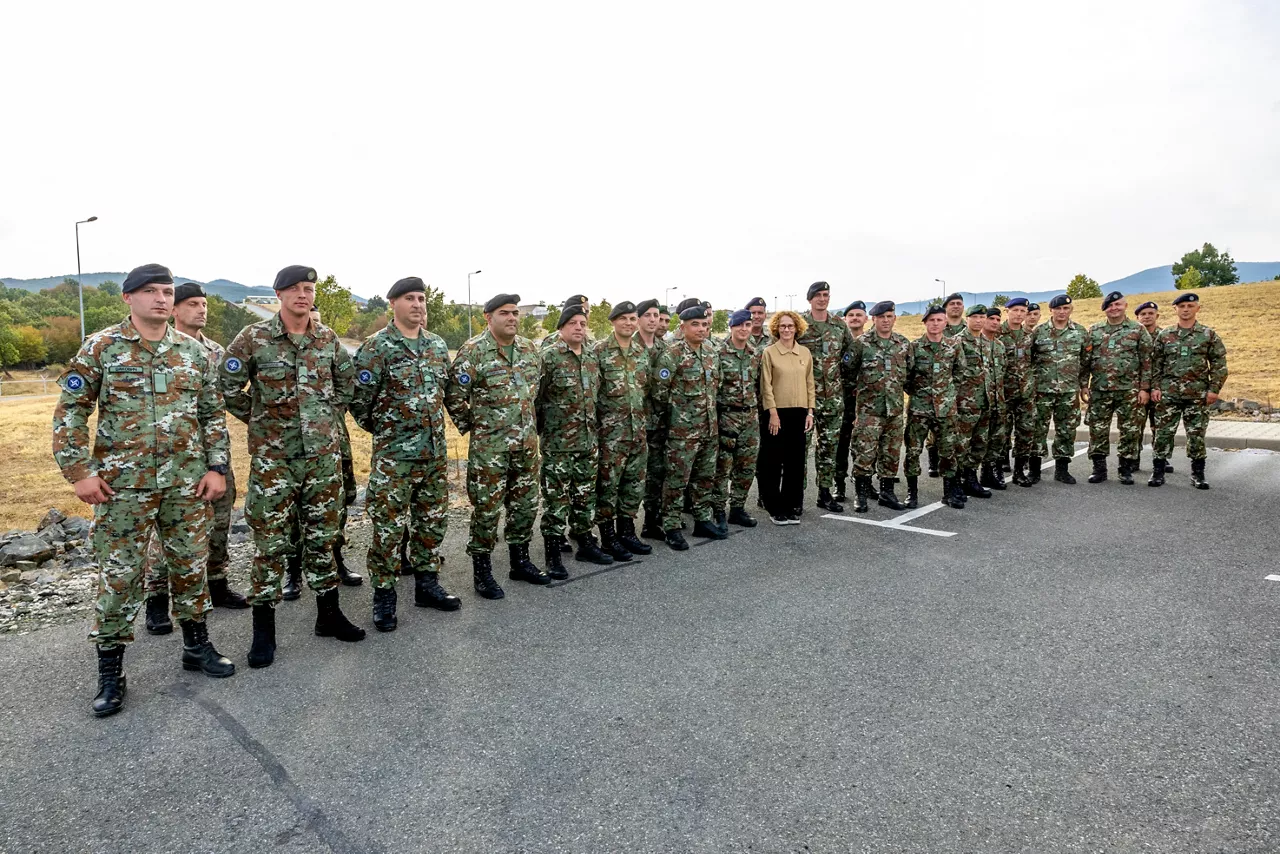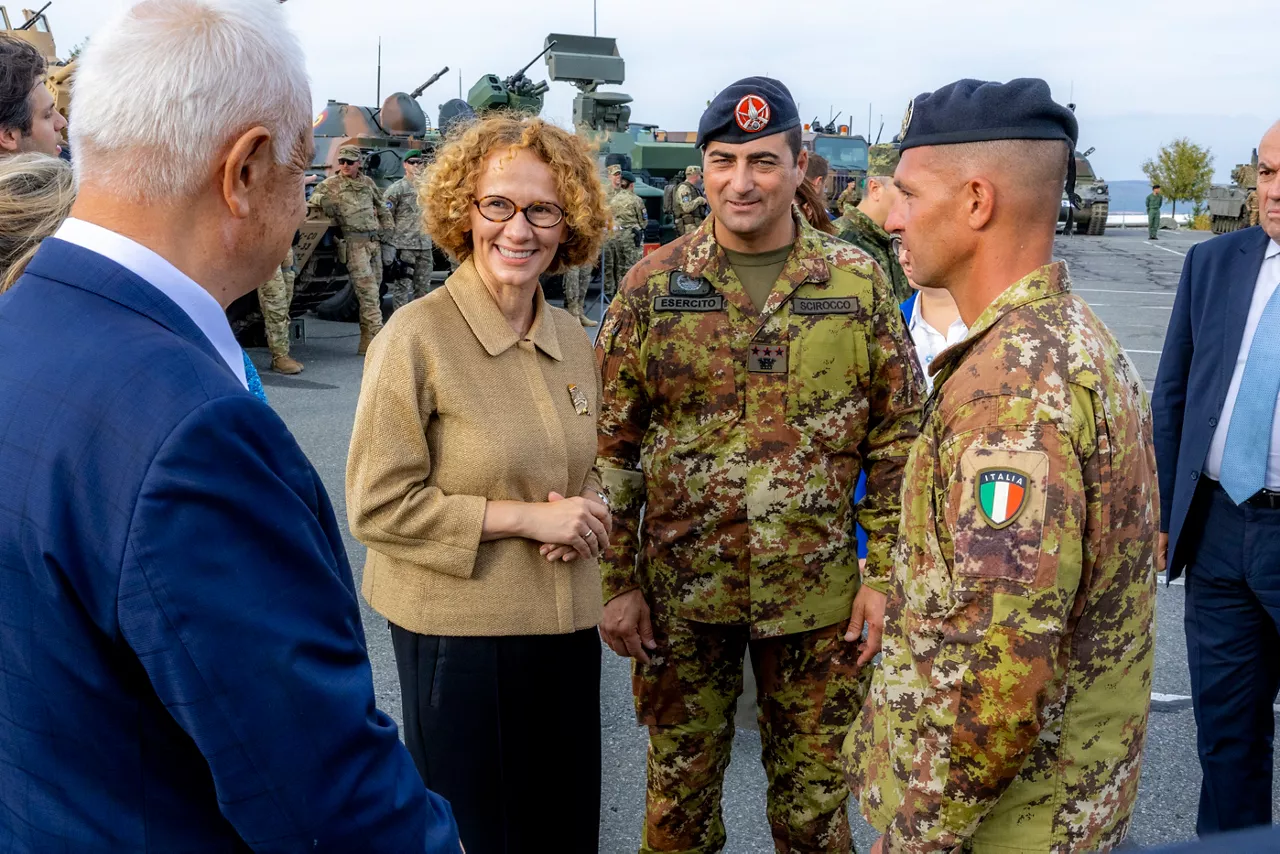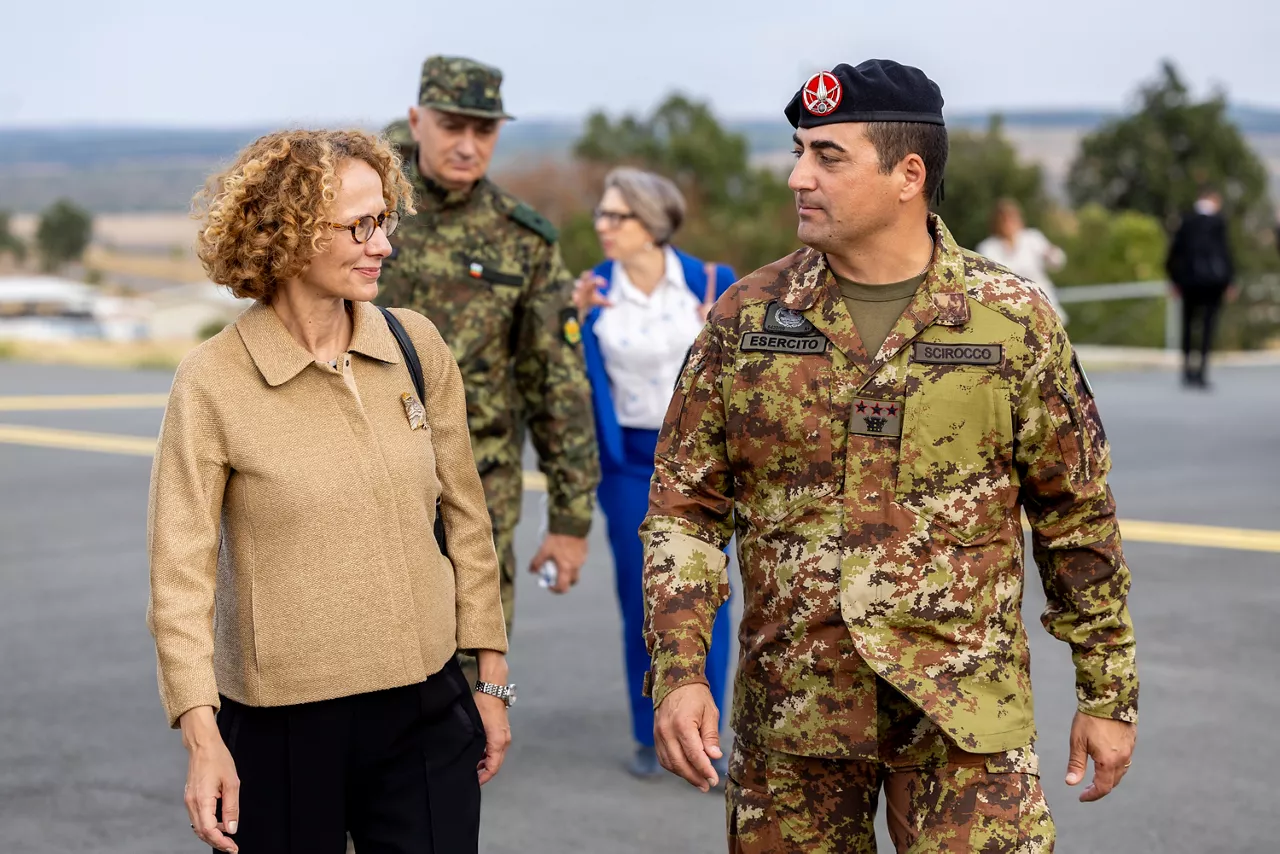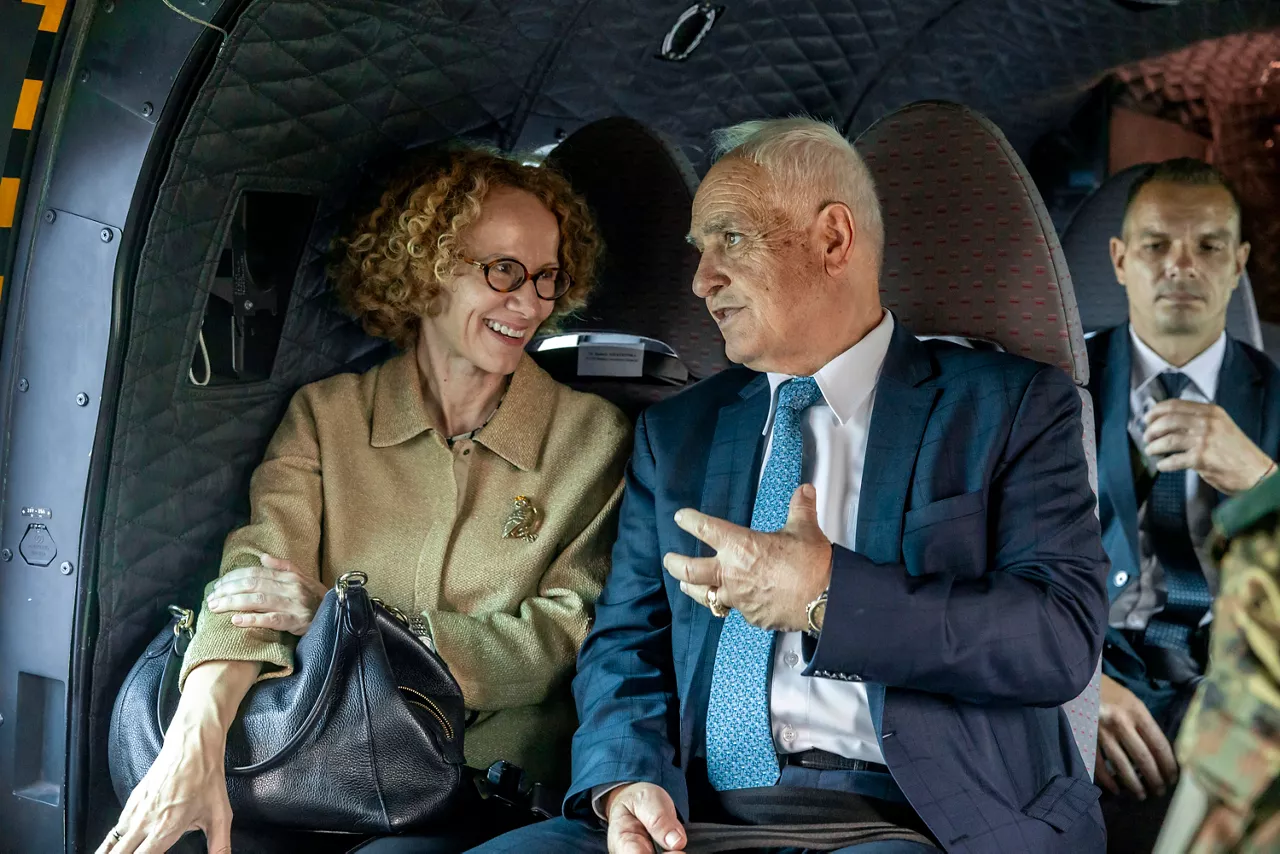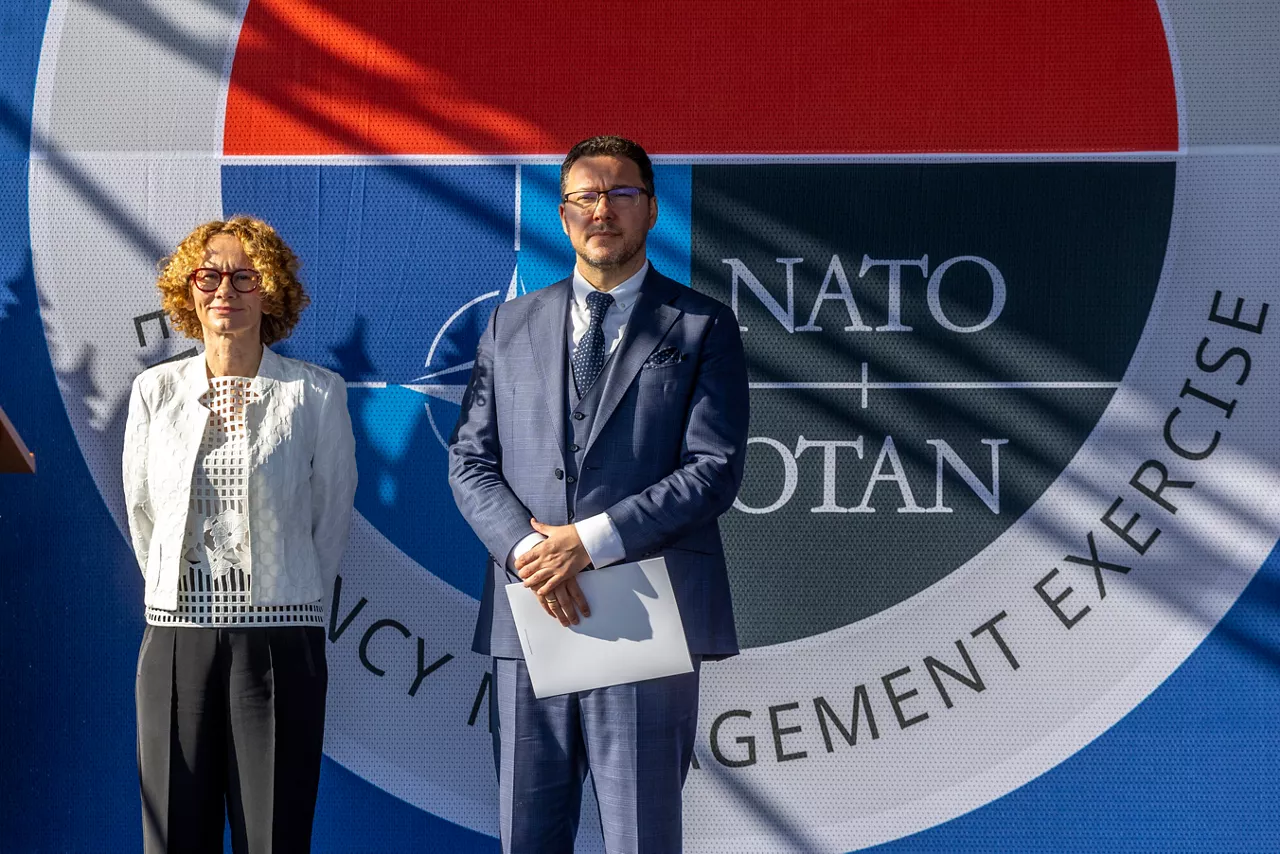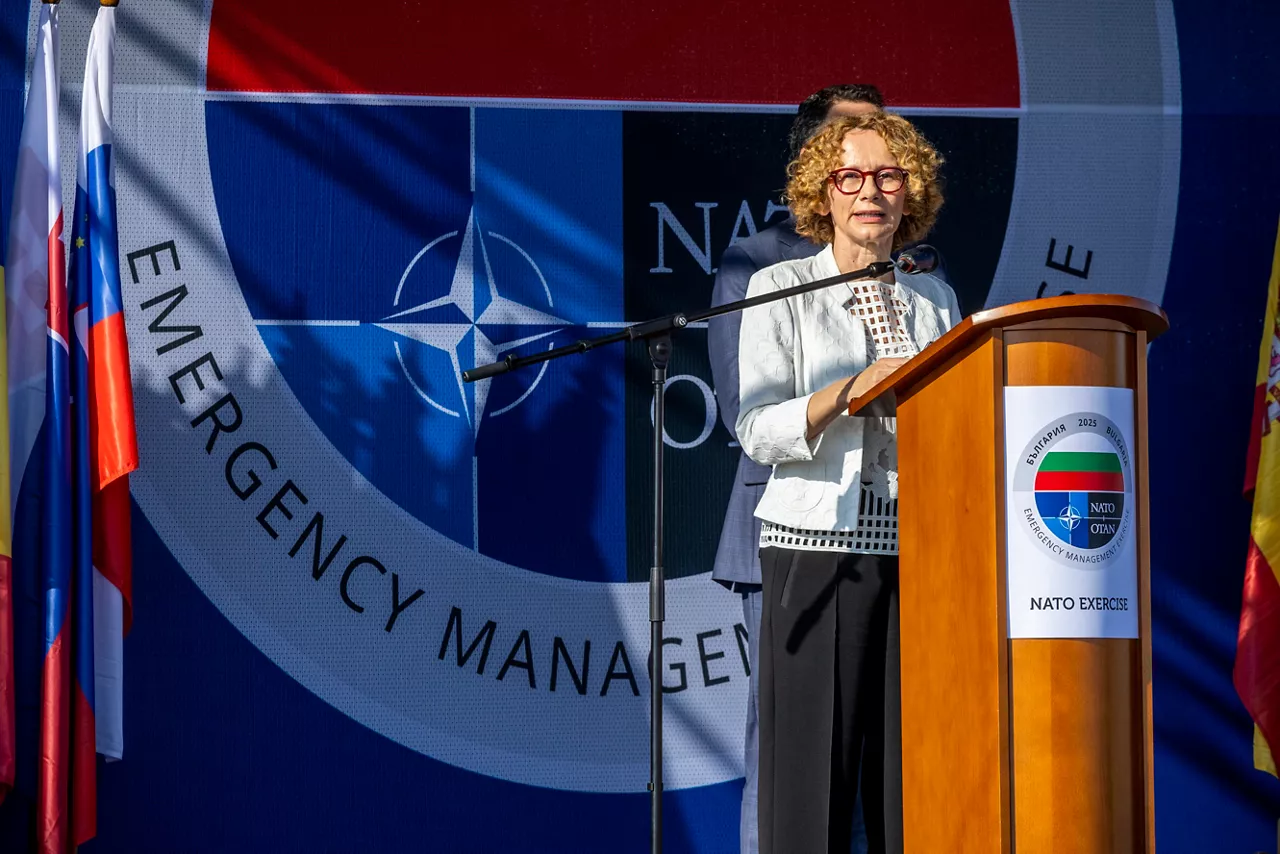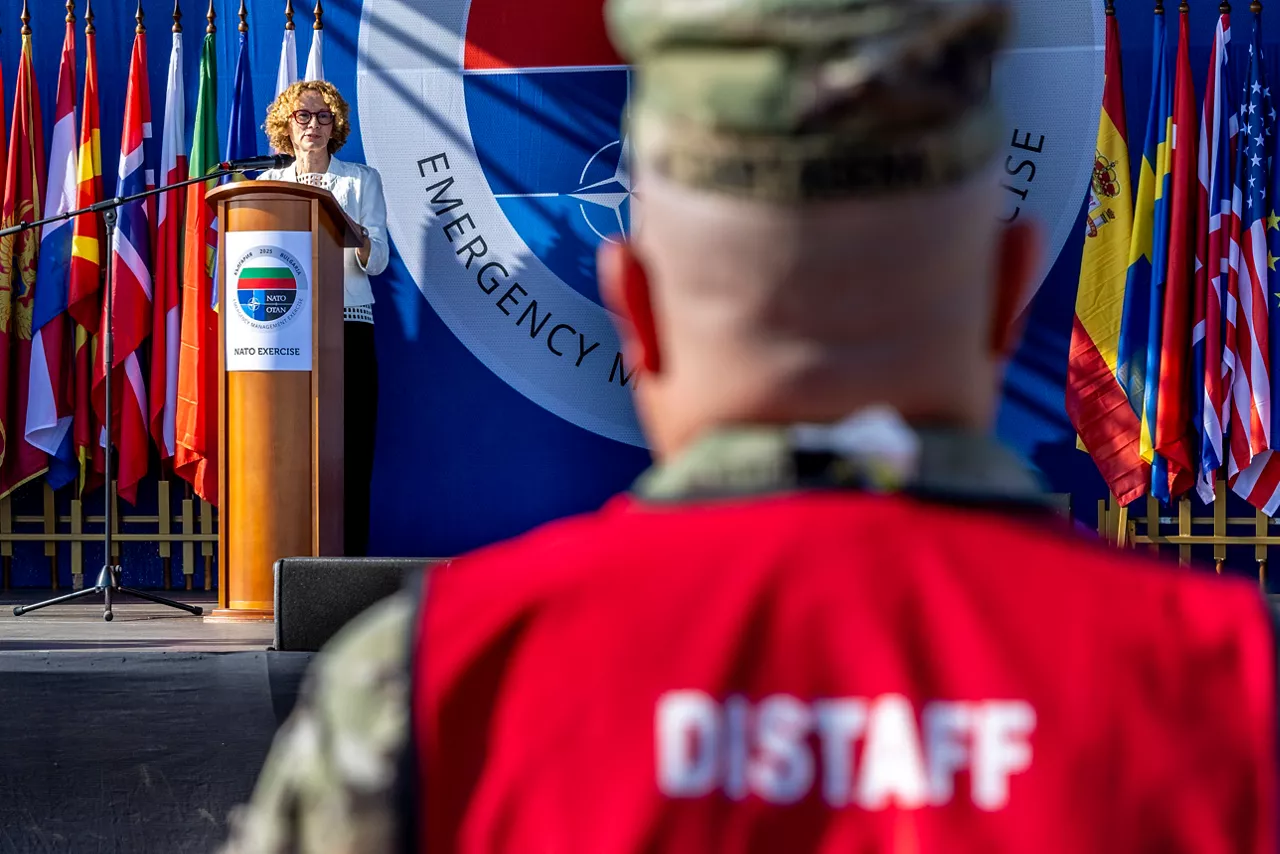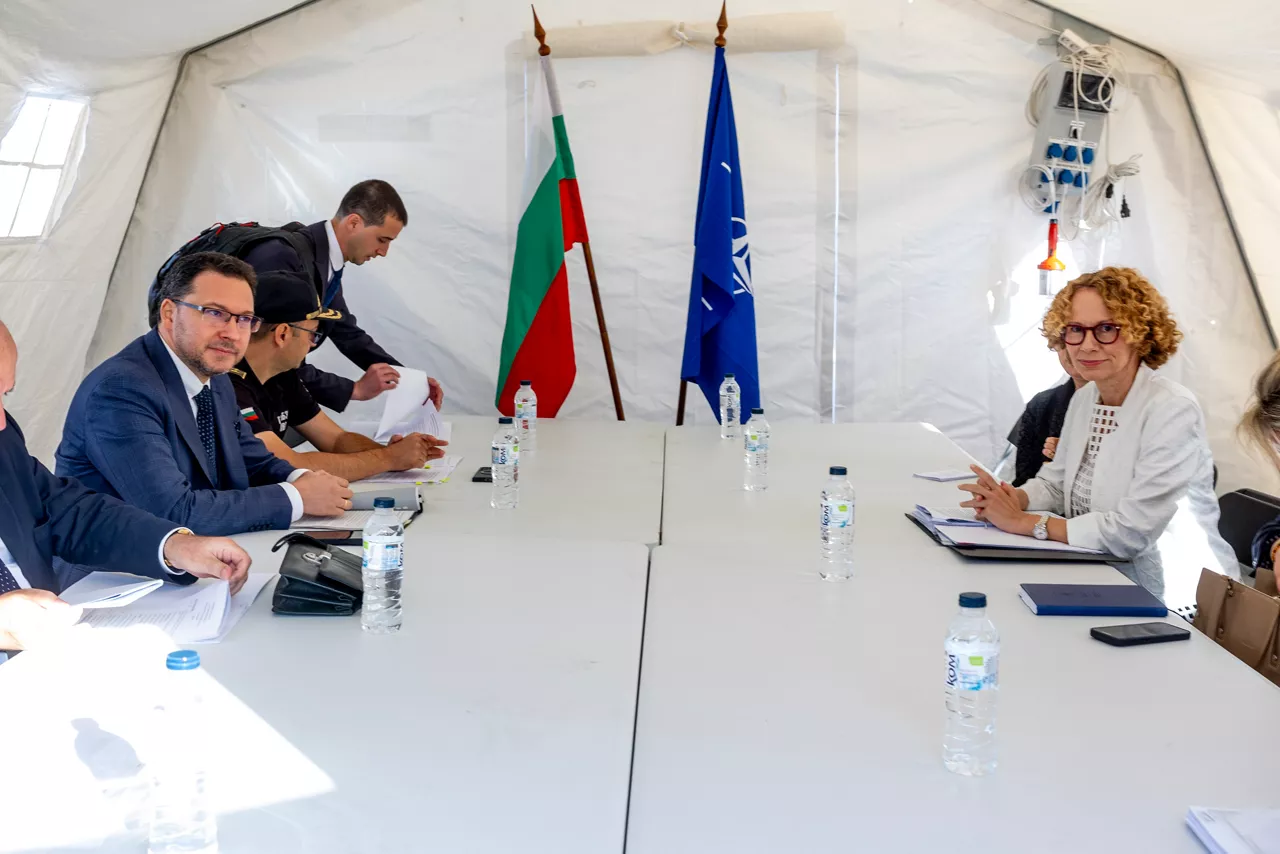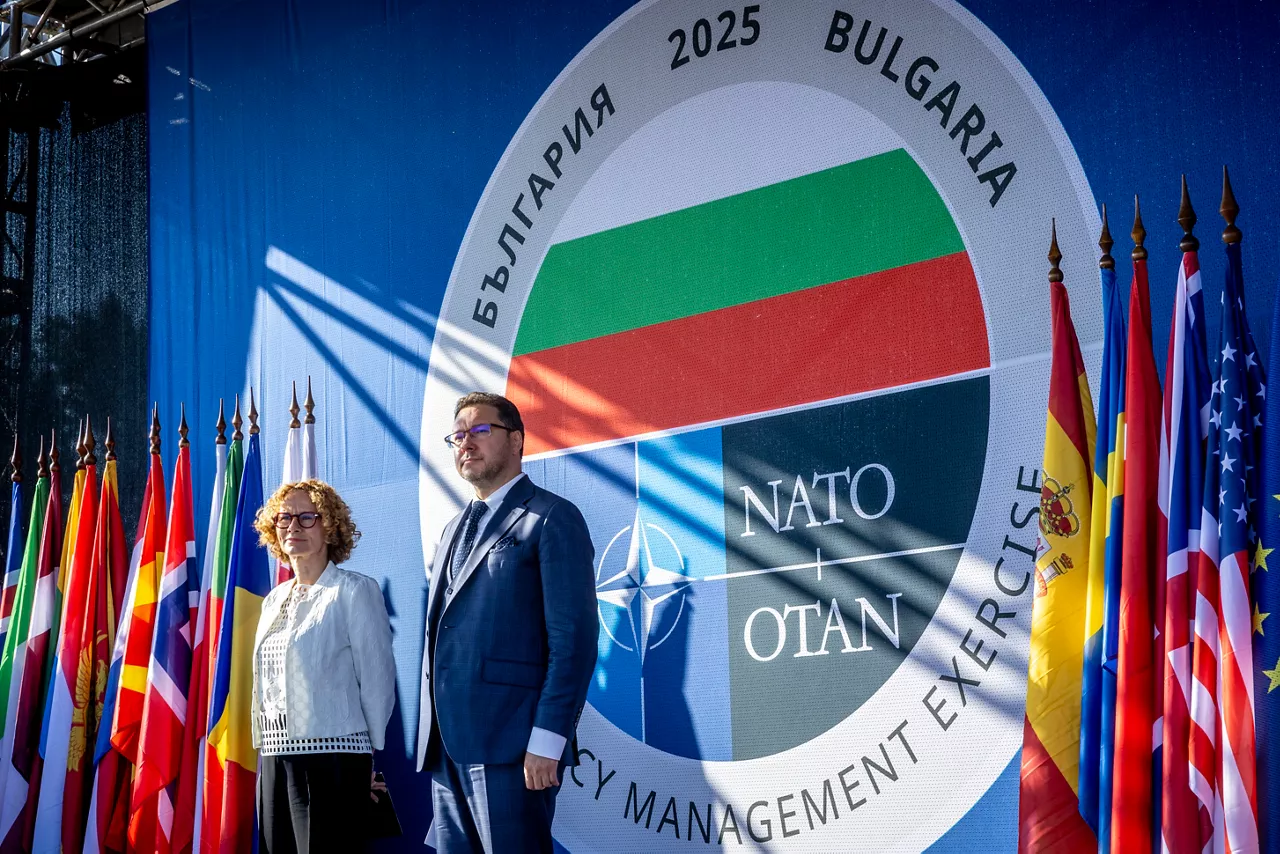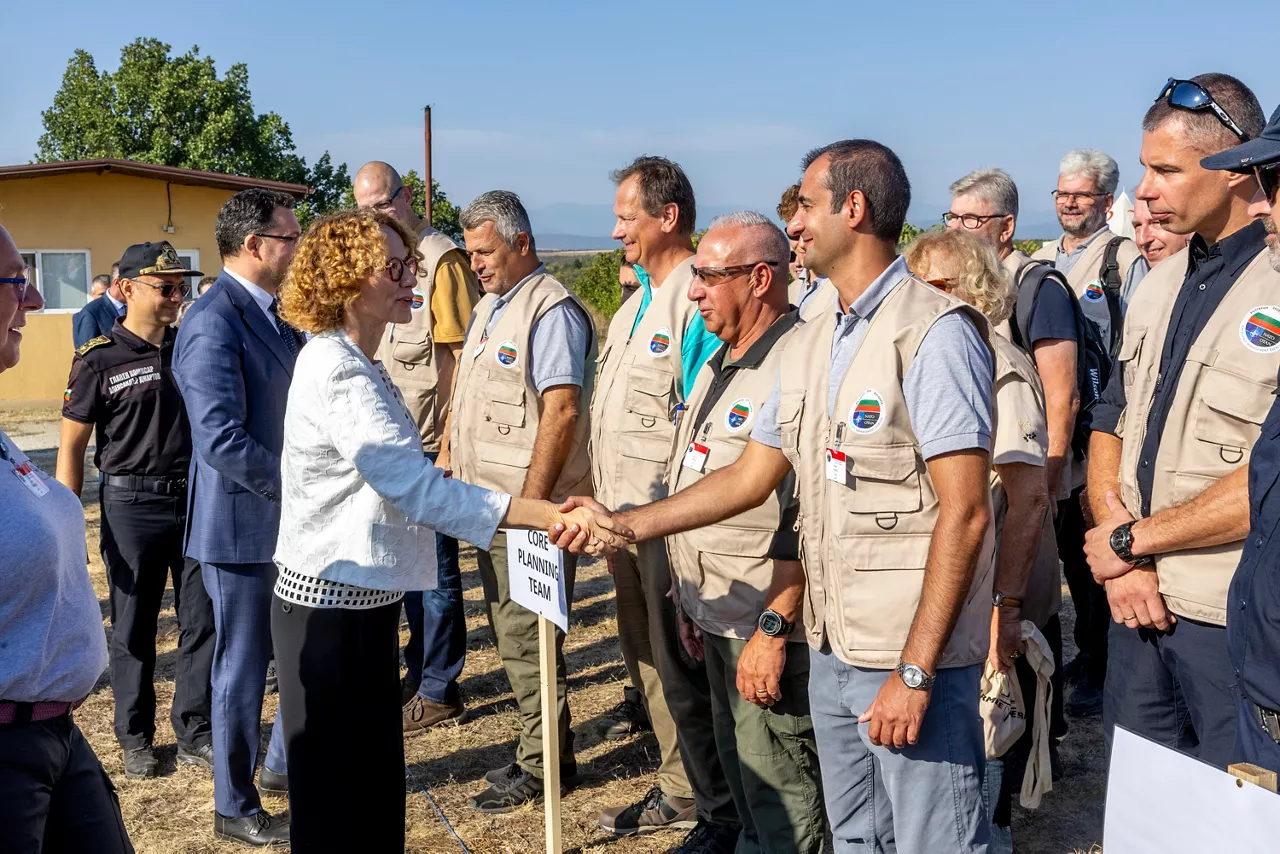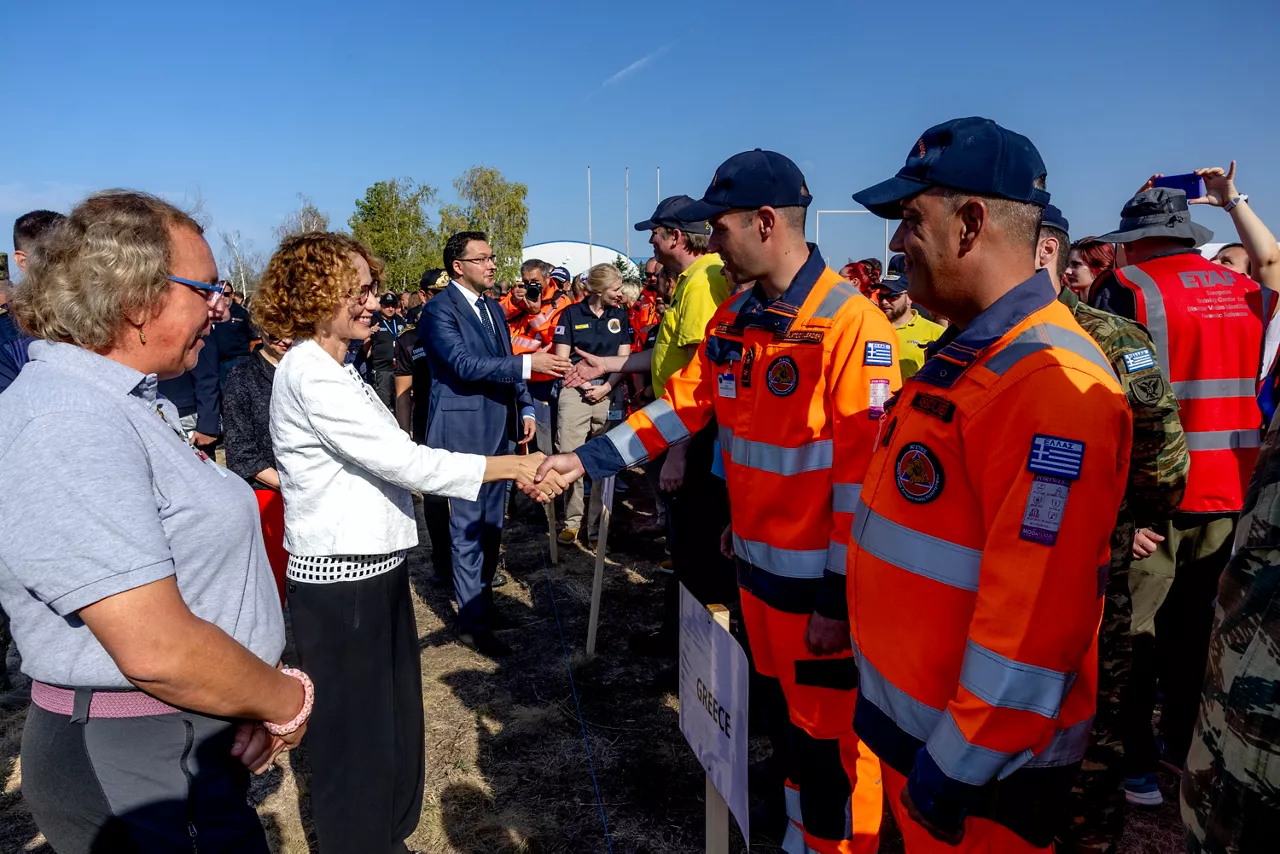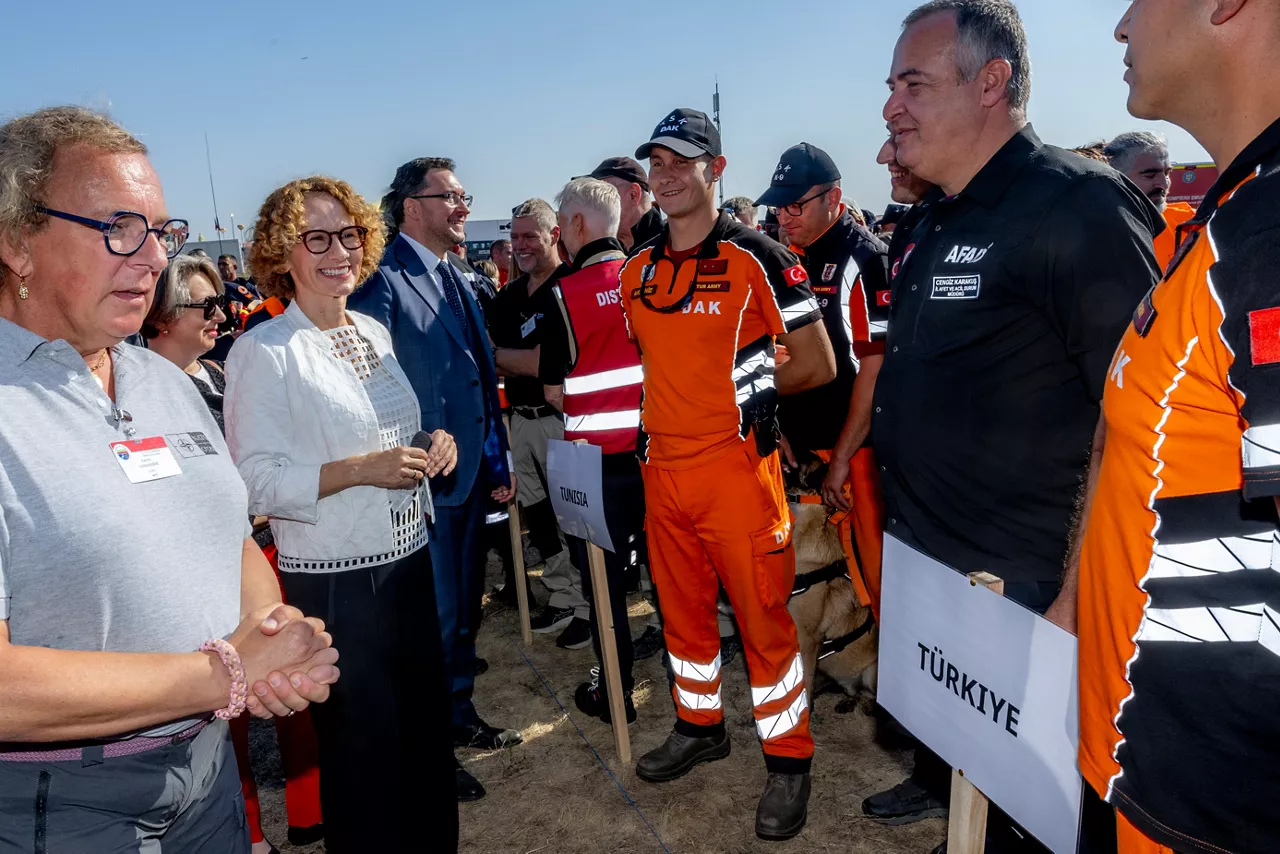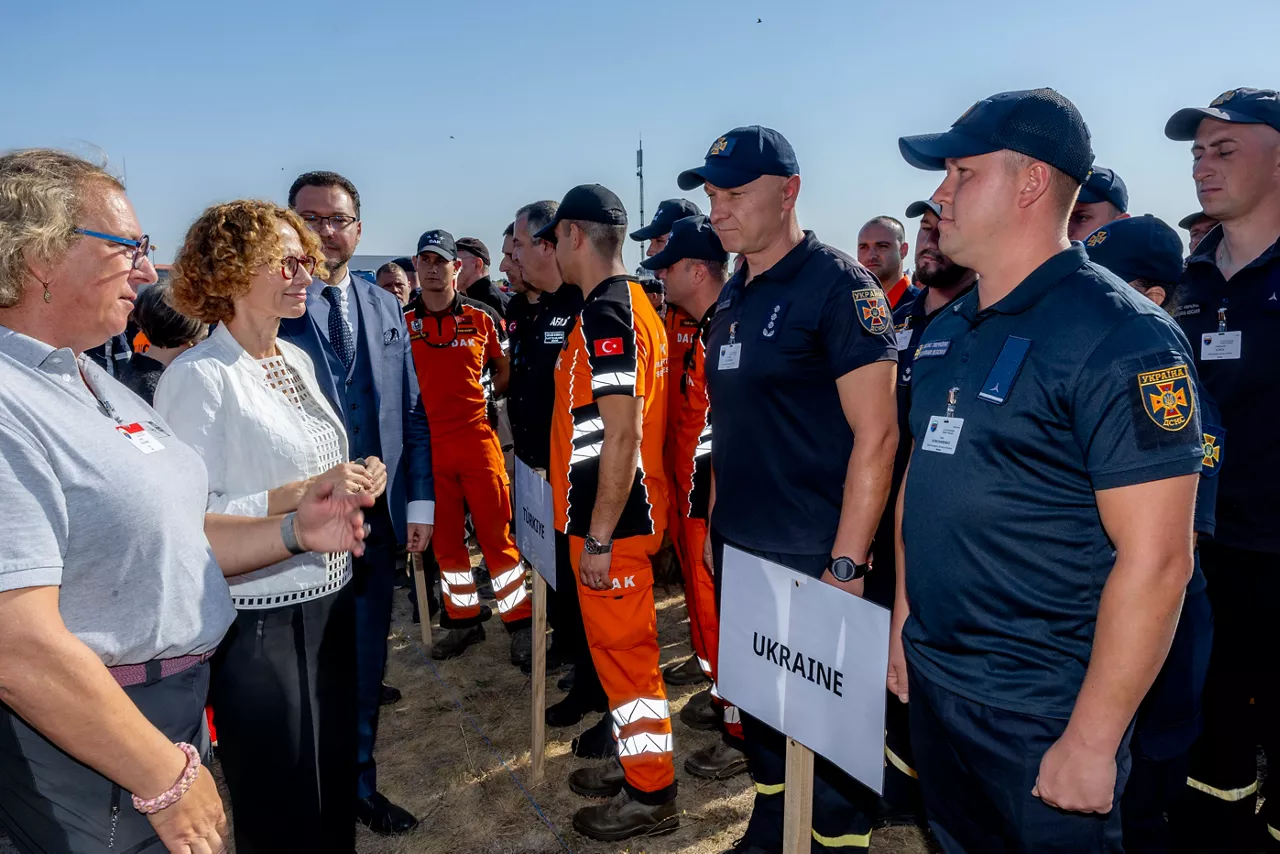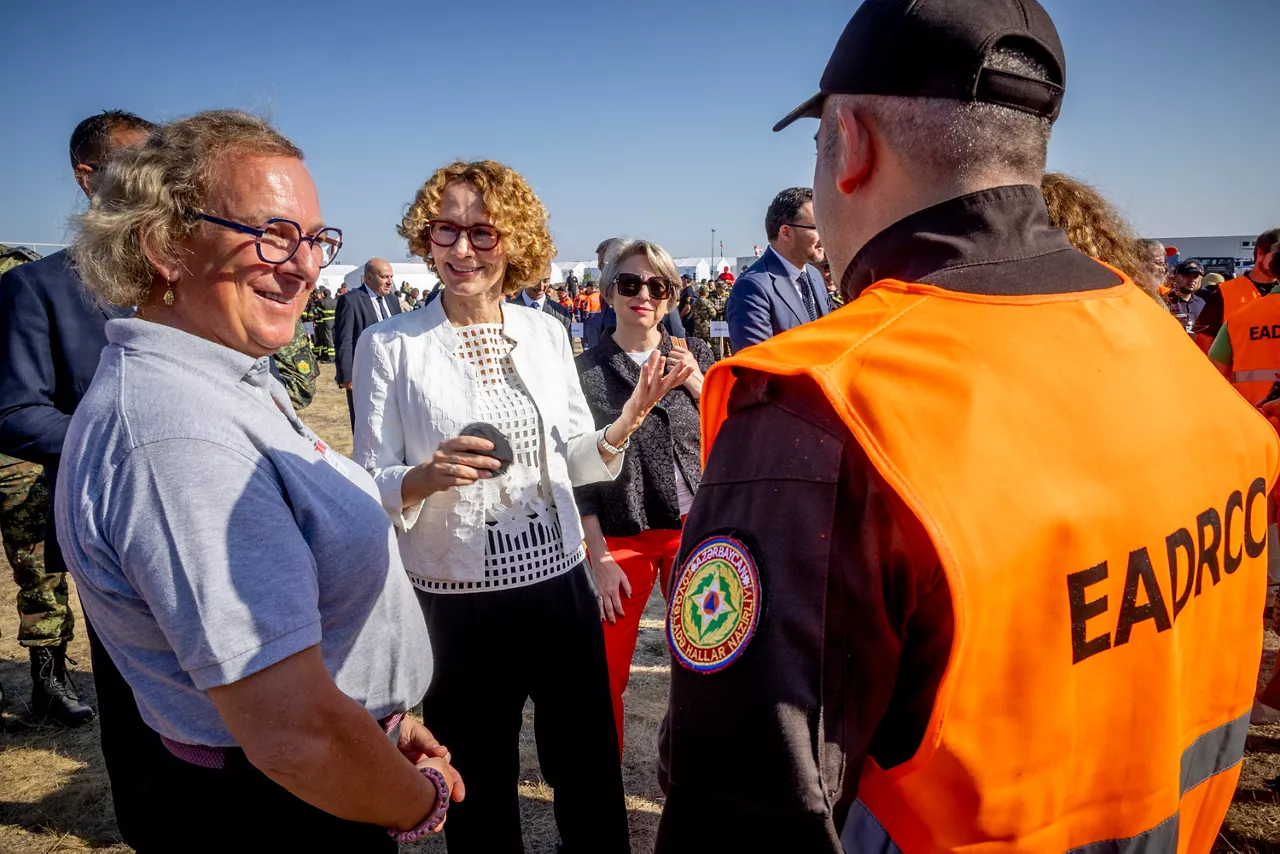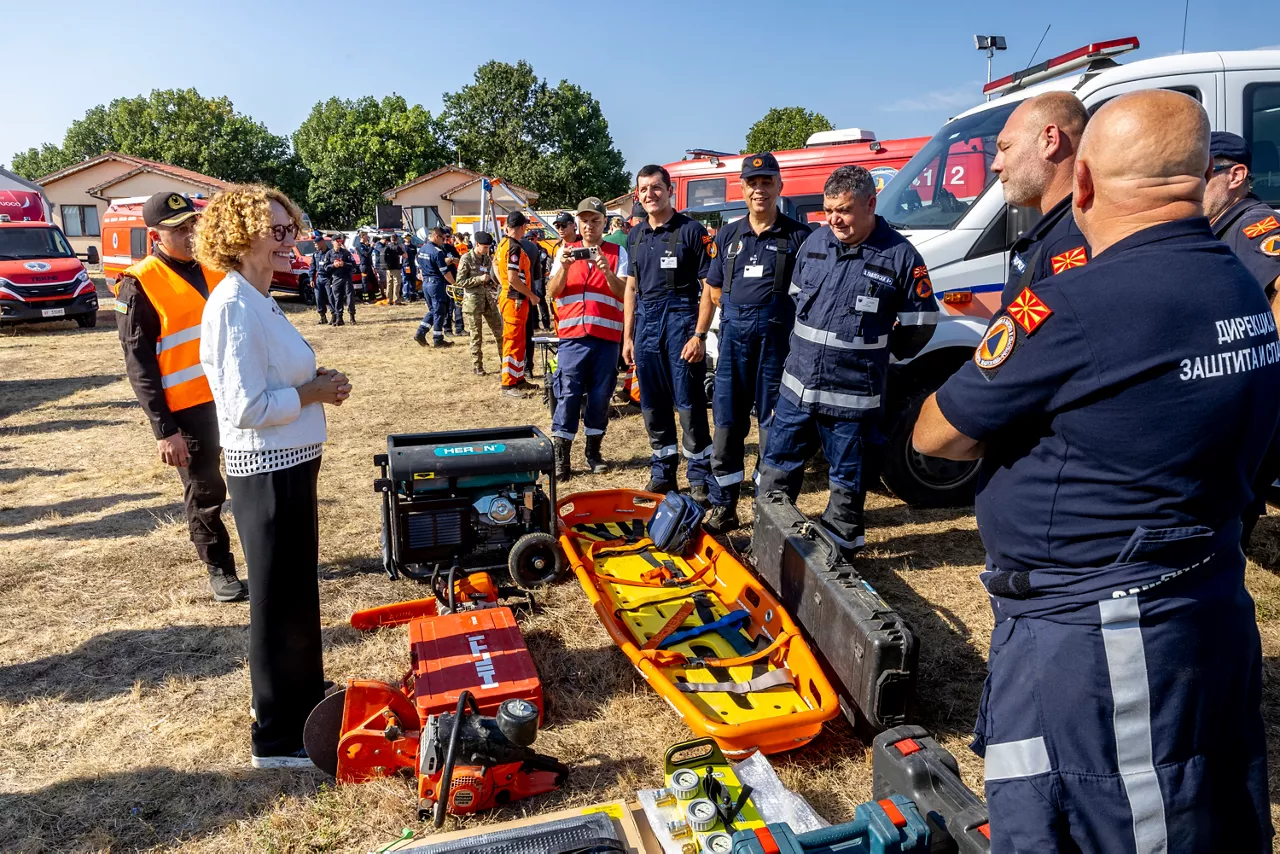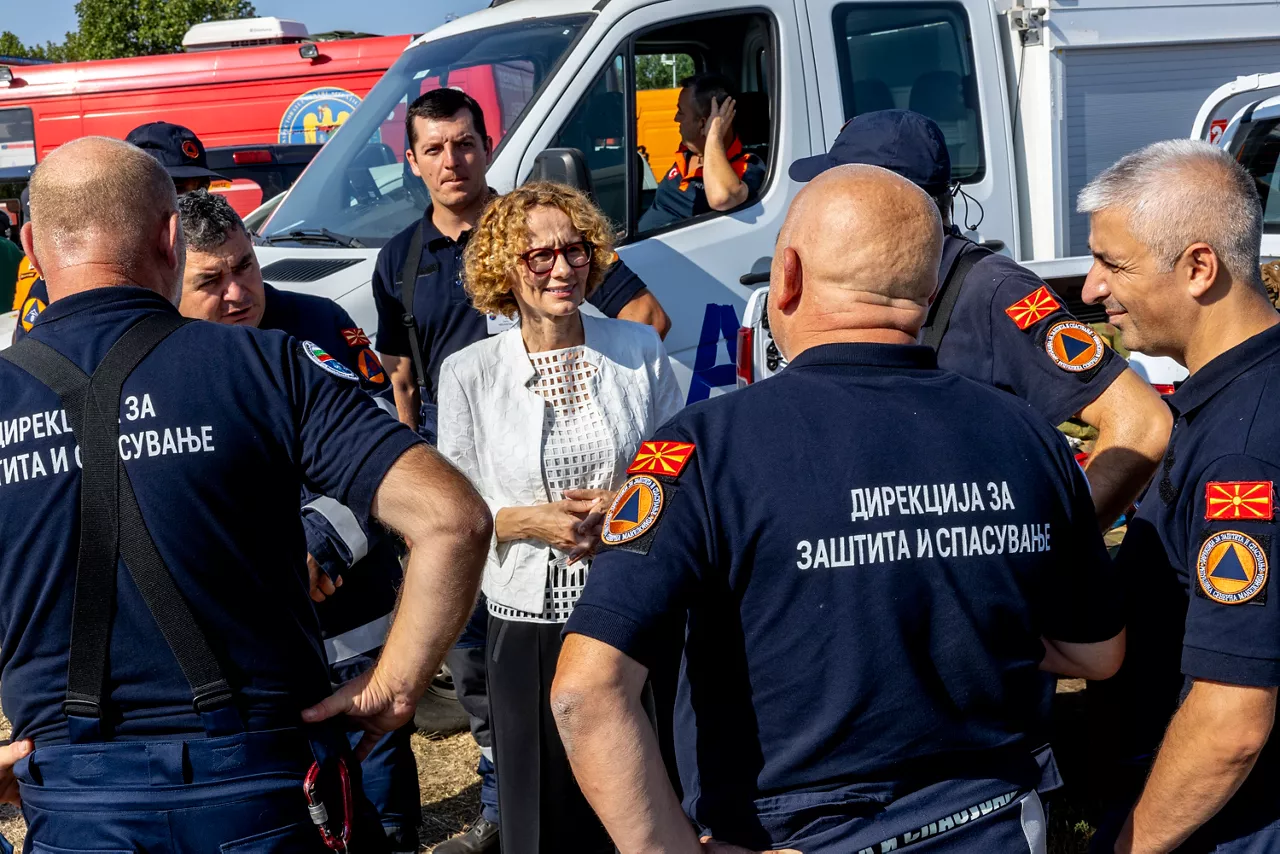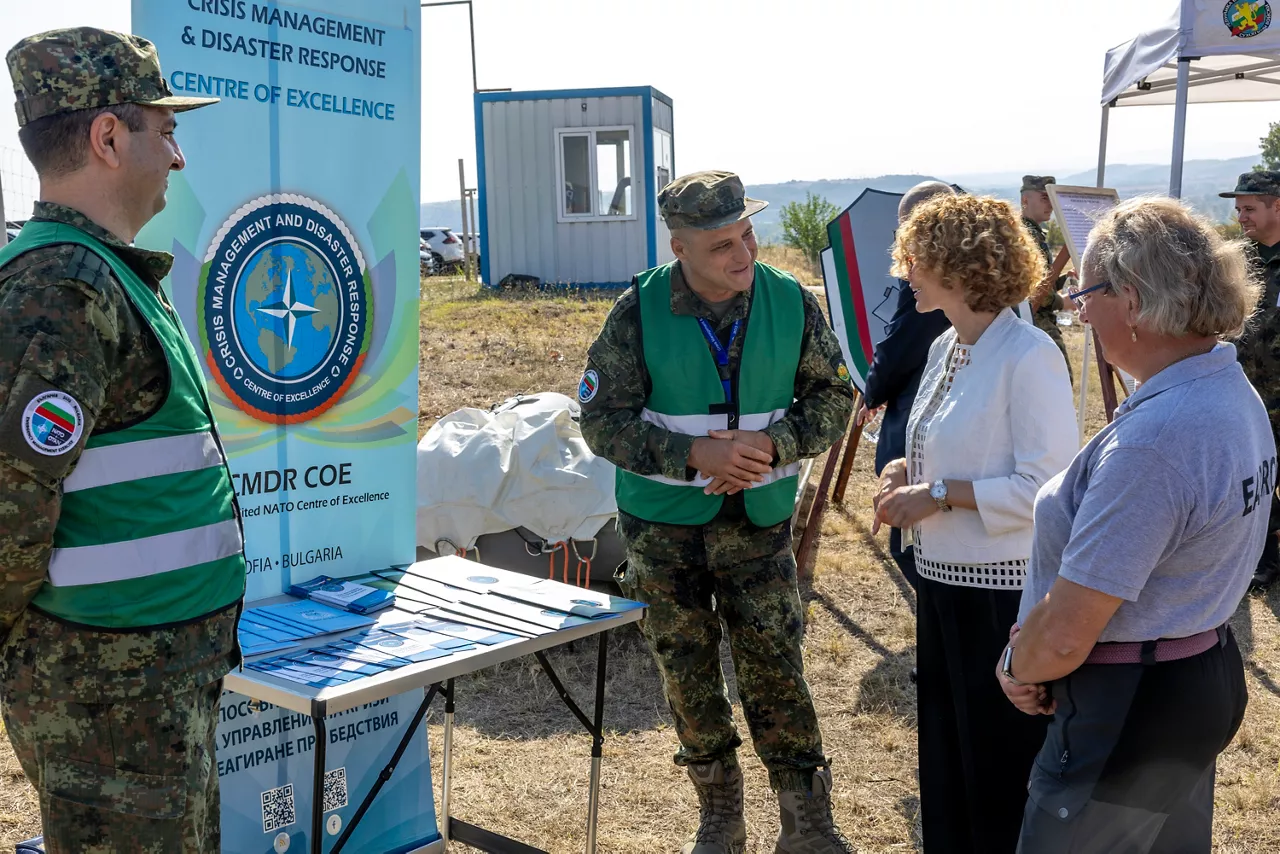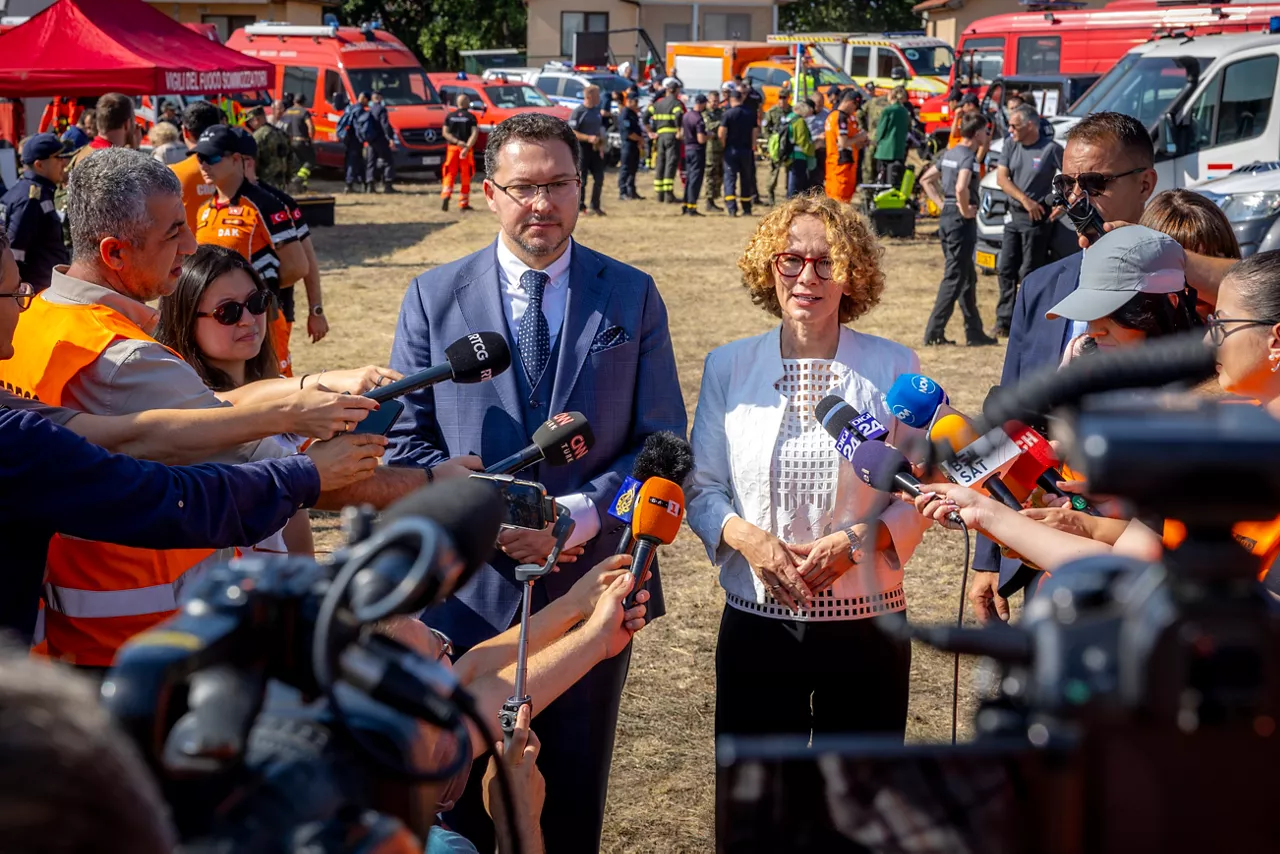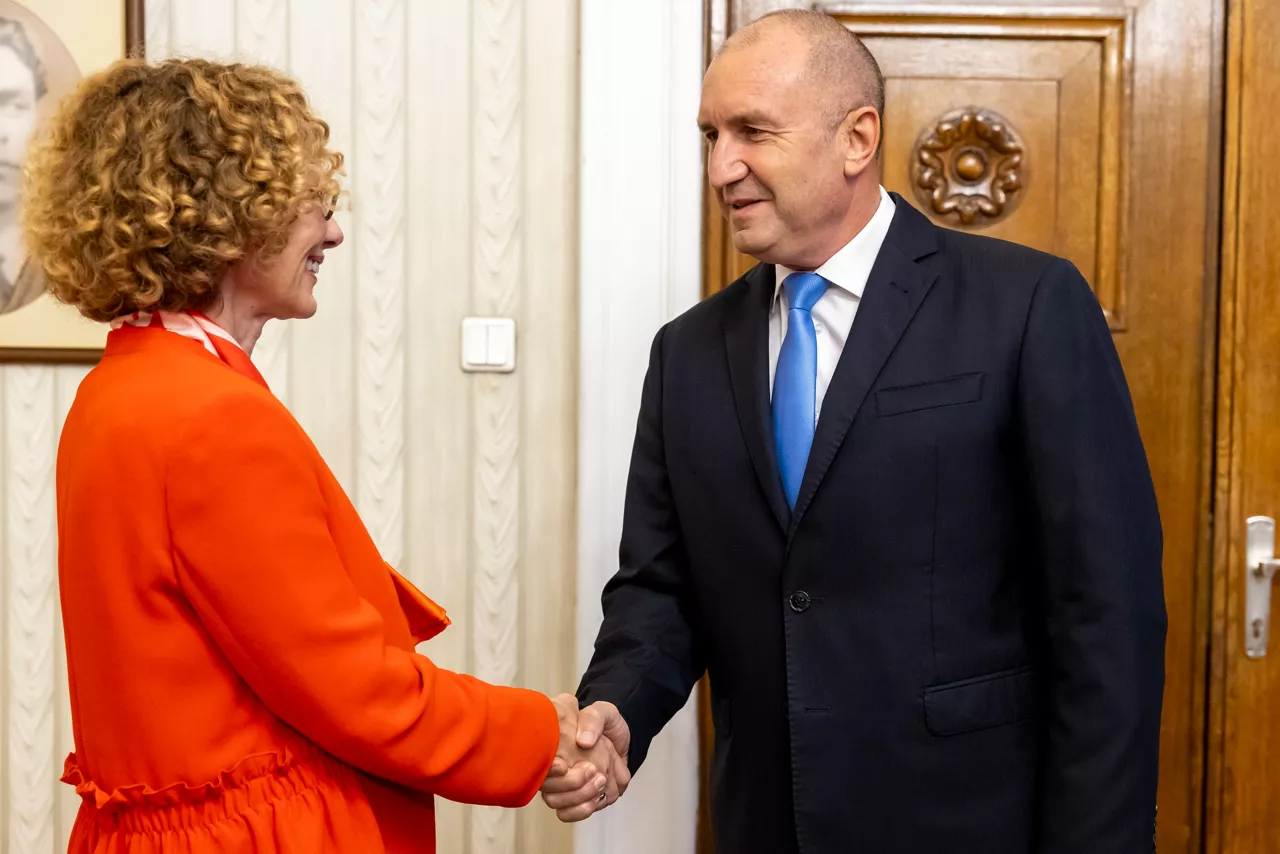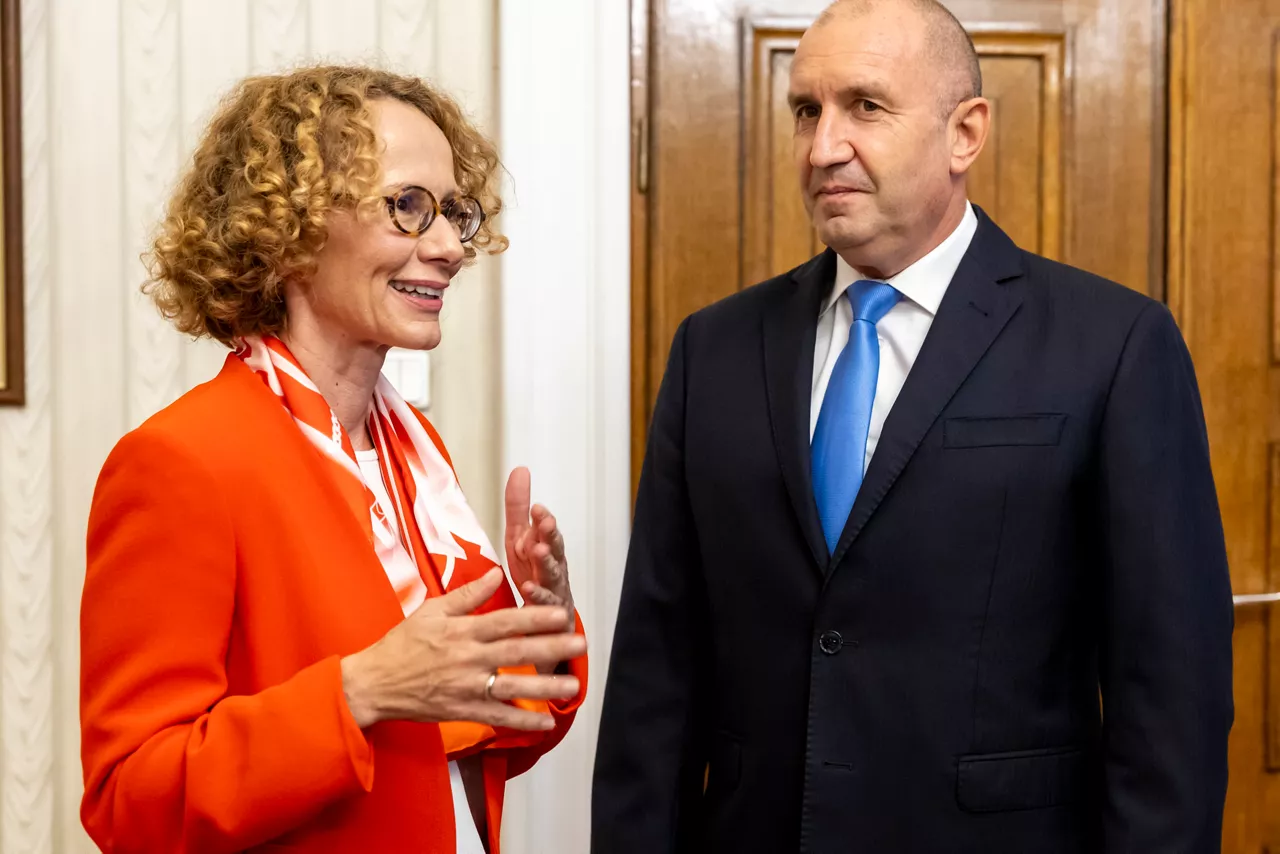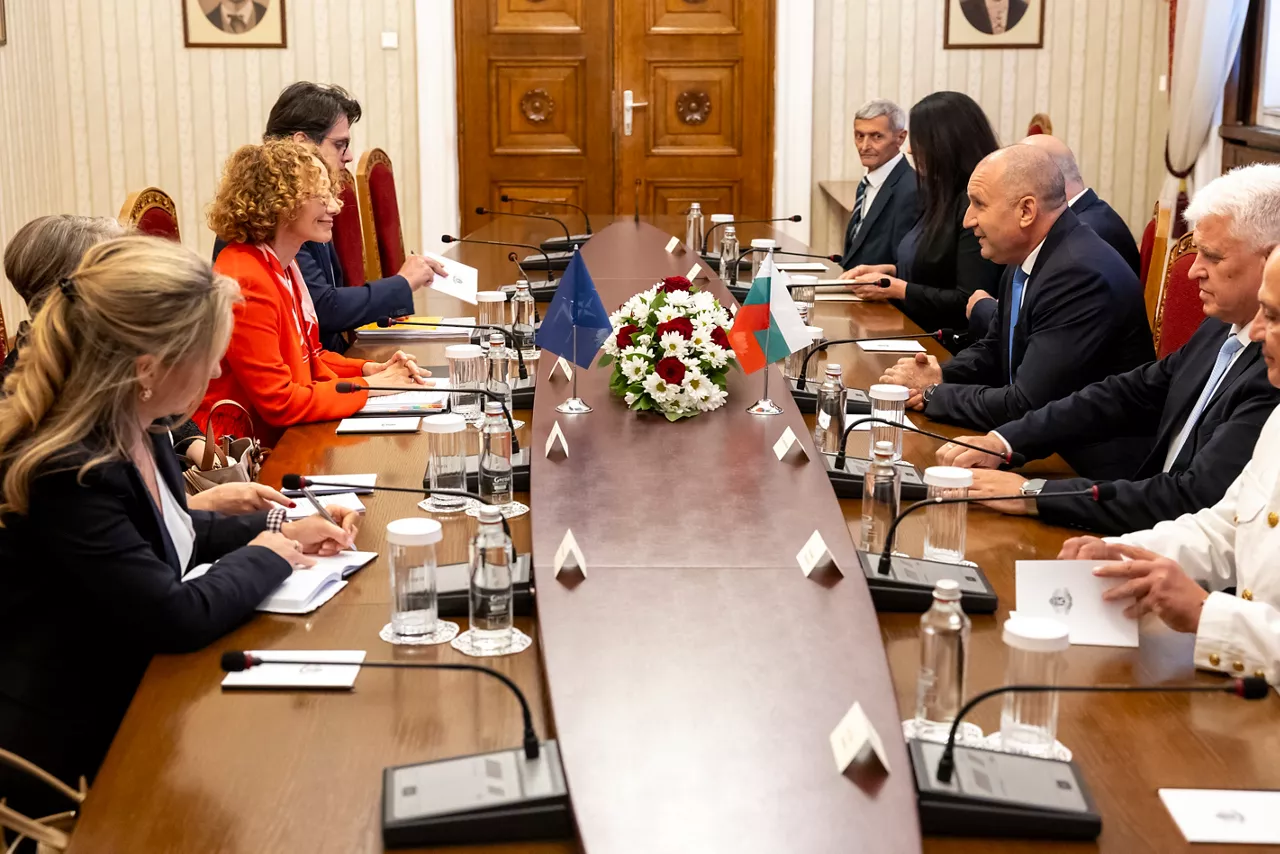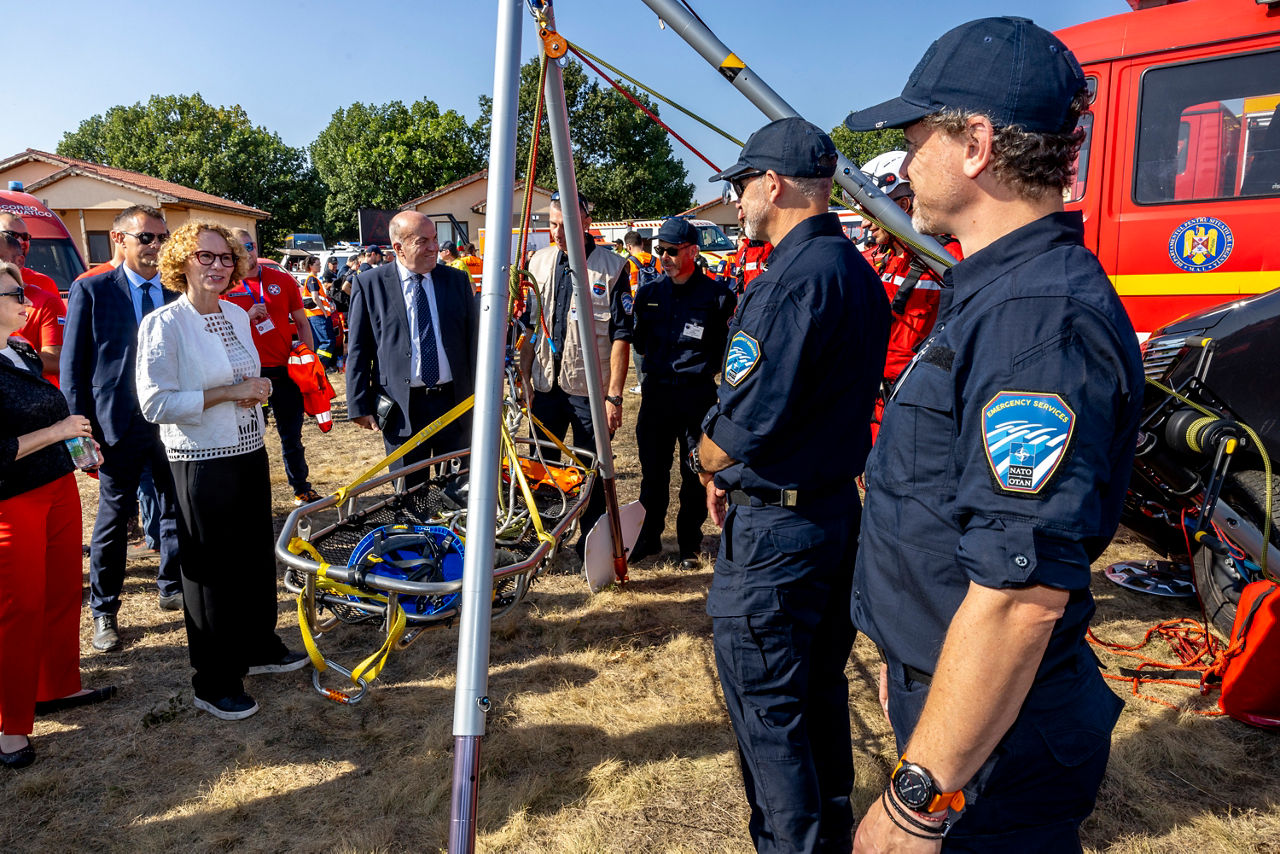Download NATO’s broadcast-quality video content free of charge

NATO MULTIMEDIA ACCOUNT
Access NATO’s broadcast-quality video content free of charge

Check your inbox and enter verification code
You have successfully created your account
From now on you can download videos from our website
Subscribe to our newsletter
If you would also like to subscribe to the newsletter and receive our latest updates, click on the button below.
Enter the email address you registered with and we will send you a code to reset your password.
Didn't receive a code? Send new Code
The password must be at least 12 characters long, no spaces, include upper/lowercase letters, numbers and symbols.
Your password has been updated
Click the button to return to the page you were on and log in with your new password.
Press conference
by NATO Deputy Secretary General Radmila Shekerinska at the opening of EADRCC exercise “Bulgaria 2025”
08 September 2025
5 MIN READ
(As delivered)
Good morning and good afternoon to everyone.
It was really a great honour and privilege for me today to open our NATO flagship civil emergency exercise BULGARIA 2025 together with Minister Mitov.
It's really a great opportunity to see our first responders in action and to give them a good ground for exercise and to improve their skills.
Over the next five days, this exercise will take place here in Montana, with more than 1000 participants from 28 Allies, 18 partner countries and 14 different organizations.
And they will all together exercise different scenarios in order to keep our citizens safe.
It will be a mixture of first responders, soldiers, scientists, but also doctors, who will exercise all these scenarios, and they will try to better prepare to save lives.
The different scenarios that will take place in the next five days will include a natural disaster, but also a terrorist attack and a technological incident.
And the idea is really to provide these first responders with an opportunity to test their capabilities and to learn from each other.
This is perhaps the largest and most complex civil emergency exercise in the world this year. And this is why the numbers speak for itself, but this is why also this equipment that you managed to see also speaks volumes of the contribution by different Allies and partners.
Let me thank Bulgaria for hosting it. This is only one of the ways in which Bulgaria is contributing to the deterrence and defence of the Alliance.
We have also managed to see our NATO troops in Novo Selo yesterday, where Bulgaria is hosting this battle group, and we have discussed, also with the leadership, with the prime minister and the ministers, the ways in which Bulgaria can continue to contribute to Allied security.
The Hague Summit conclusions were very clear. And Bulgaria has joined these conclusions. It is essential that we invest more in our defence capabilities, by increasing our defence spending, by increasing our defence production. But also by supporting Ukraine in fighting for its freedom and fighting for peace.
I have used the opportunity to thank our Bulgarian counterparts for these contributions, and we will continue to work on creating a safer Alliance for all the one billion citizens.
Thank you.
Ömer Şahin, Al Jazeera
Ömer Şahin from Al Jazeera. This is not the first exercise for NATO. This is the 20th, but you said it is the largest and most complex one. Why, I want to know only for the number, because of the number, and why in this time?
Deputy Secretary General
Well, this is the 20th exercise. We improve always our capacity. We try to increase the numbers. But what I said: biggest globally. I didn't compare it to previous exercises. I was just focusing that today in the world, we have different exercises of this kind, but this is the largest by far and most complex exercise because, as I said, we have a mixture of different threats coinciding and checking our capability and resilience how to deal with them at once. I think the Minister was very clear in saying what has happened throughout Europe and the world is a clear message to us, that we have to be prepared for an enhanced number of fires, civil emergencies, but also sometimes the fact that they coincide with different kinds of security challenges. And this is what we will exercise here. The idea of the NATO Alliance, since its birth, has been to keep the citizens safe and to bring security. It means deterring against any aggression. It means defending us against any aggressor, but it also means protecting us from these kinds of civil emergency and disasters.
Nataliia Yarmola, 1+1
1+1, Ukrainian channel. My question is related to that fact which you mentioned, war in Ukraine, of course. And did you take account into consideration that fact that in Ukraine there was Kakhovka Dam Disaster, etc.? Did you take it into consideration preparing these training exercises?
Deputy Secretary General
Whatever we do in this period is very much effective and taking into account the tragedy and the suffering in Ukraine. Let me use the opportunity to condemn especially the last really deadly attacks. Russia attacked Ukraine with more than 800 drones just two days ago, and targeting predominantly civilians and civilian and energy infrastructure. And this clearly shows that Russia is not really interested in peace. So, what we said at the Summit in the Hague was that we stay with Ukraine, and we will continue to support it politically, but also militarily. What NATO has done, especially after the NATO Summit, to initiate the so-called PURL model of supporting Ukraine in its priority needs, especially on air defence, is, I think, a very clear confirmation that we know that Ukraine security matters. And that we know that Ukraine security and the security in the Euro Atlantic are interlinked. So, in a way, we increase our defences and our deterrence. But our first line of deterrence, in terms of communication, in terms of action is the support that we give to Ukraine. And we call upon all Allies to really increase this support in political terms, but very much in military terms. Because we need to keep Ukrainians safe, and we need to support you by giving you strength so that you can negotiate from that position.
Vadim Cheptanaru, TVR Moldova
How is this exercise working for non-NATO countries, for example, such as Republic of Moldova?
Deputy Secretary General
Well, thank you very much for that question. I think there are two clear deliverables that sometimes remain not as visible when we finish these exercises. And I want to raise them now. The first one is actually the combination we have mentioned, first responders, soldiers, paramedics, doctors, all these firefighters, all these teams in civil emergency. But what is interesting is that we have a significant presence of scientists. We really want to use science and innovation to support our goals in dealing with civil emergencies. But the second important element is a very strong presence by our partners. So, we have 28 Allies present, but we have 18 partners, NATO partners, who are also here with us from various parts of the world. From, let me just mention, the furthest from Japan to Colombia. And we are very glad that we have a very strong Moldovan team joining us. Moldova is a very important partner for NATO, and in our partnership program, we pay a lot of attention to supporting each other in dealing with civil emergencies. Because you know, when you have a civil emergency, you know you count on your neighbours, you count on your partners. In NATO, we count on our Allies to give you this hand of support. And they always come. So, we count on our partners in Moldova, but we are also there to support Moldovan efforts in building stronger institutions that deal with crisis and emergency situations.
Related assets
GALLERIES
NATO Deputy Secretary General visits Bulgaria
07 September 2025 - 08 September 2025
NATO Deputy Secretary General Radmilla Shekerinska with the NATO Permanent Representative for Bulgaria, Nikolay Milkov
NATO Deputy Secretary General Radmilla Shekerinska meets with the Prime Minister of Bulgaria, Rossen Jeliazkov
NATO Deputy Secretary General Radmilla Shekerinska meets with the Prime Minister of Bulgaria, Rossen Jeliazkov
NATO Deputy Secretary General Radmilla Shekerinska meets with the Prime Minister of Bulgaria, Rossen Jeliazkov
NATO Deputy Secretary General Radmilla Shekerinska arrives at Bezmer Airbase
NATO Deputy Secretary General Radmilla Shekerinska arrives at Bezmer Airbase
NATO Deputy Secretary General Radmilla Shekerinska arrives at Bezmer Airbase
NATO Deputy Secretary General Radmilla Shekerinska and Atanas Zaprianov, Minister of Defence of Bulgaria
NATO Deputy Secretary General Radmilla Shekerinska and Atanas Zaprianov, Minister of Defence of Bulgaria
NATO Deputy Secretary General Radmilla Shekerinska visits Novo Selo Training Area Multinational Battle Group and meets with the troops
NATO Deputy Secretary General Radmilla Shekerinska visits Novo Selo Training Area Multinational Battle Group and meets with the troops
NATO Deputy Secretary General Radmilla Shekerinska and the Minister of Defence of Bulgaria, Atanas Zaprianov visit Novo Selo Training Area Multinational Battle Group. Briefing by the Commander MBG, Col Mattia Scirocco
NATO Deputy Secretary General Radmilla Shekerinska and the Minister of Defence of Bulgaria, Atanas Zaprianov visit Novo Selo Training Area Multinational Battle Group. Briefing by the Commander MBG, Col Mattia Scirocco
NATO Deputy Secretary General Radmilla Shekerinska visits Novo Selo Training Area Multinational Battle Group and meets with the troops
NATO Deputy Secretary General Radmilla Shekerinska visits Novo Selo Training Area Multinational Battle Group and meets with the troops
NATO Deputy Secretary General Radmilla Shekerinska and the Minister of Defence of Bulgaria, Atanas Zaprianov visit Novo Selo Training Area Multinational Battle Group. Briefing by the Commander MBG, Col Mattia Scirocco
NATO Deputy Secretary General Radmilla Shekerinska visits Novo Selo Training Area Multinational Battle Group and meets with the troops
NATO Deputy Secretary General Radmilla Shekerinska visits Novo Selo Training Area Multinational Battle Group and meets with the troops
NATO Deputy Secretary General Radmilla Shekerinska visits Novo Selo Training Area Multinational Battle Group and meets with the troops
NATO Deputy Secretary General Radmilla Shekerinska visits Novo Selo Training Area Multinational Battle Group and meets with the troops
NATO Deputy Secretary General Radmilla Shekerinska visits Novo Selo Training Area Multinational Battle Group and meets with the troops
NATO Deputy Secretary General Radmilla Shekerinska visits Novo Selo Training Area Multinational Battle Group and meets with the troops
NATO Deputy Secretary General Radmilla Shekerinska visits Novo Selo Training Area Multinational Battle Group and meets with the troops
NATO Deputy Secretary General Radmilla Shekerinska visits Novo Selo Training Area Multinational Battle Group and meets with the troops
NATO Deputy Secretary General Radmilla Shekerinska visits Novo Selo Training Area Multinational Battle Group and meets with the troops
NATO Deputy Secretary General Radmilla Shekerinska visits Novo Selo Training Area Multinational Battle Group and meets with the troops
NATO Deputy Secretary General Radmilla Shekerinska visits Novo Selo Training Area Multinational Battle Group and meets with the troops
NATO Deputy Secretary General Radmilla Shekerinska visits Novo Selo Training Area Multinational Battle Group and meets with the troops
NATO Deputy Secretary General Radmilla Shekerinska visits Novo Selo Training Area Multinational Battle Group and meets with the troops
NATO Deputy Secretary General Radmilla Shekerinska visits Novo Selo Training Area Multinational Battle Group and meets with the troops
NATO Deputy Secretary General Radmilla Shekerinska visits Novo Selo Training Area Multinational Battle Group and meets with the troops
NATO Deputy Secretary General Radmilla Shekerinska visits the NATO Emergency Management exercise "BULGARIA 2025" with Daniel Mitov, Minister of the Interior of Bulgaria
NATO Deputy Secretary General Radmilla Shekerinska visits the NATO Emergency Management exercise "BULGARIA 2025" with Daniel Mitov, Minister of the Interior of Bulgaria
NATO Deputy Secretary General Radmilla Shekerinska visits the NATO Emergency Management exercise "BULGARIA 2025" with Daniel Mitov, Minister of the Interior of Bulgaria
NATO Deputy Secretary General Radmilla Shekerinska visits the NATO Emergency Management exercise "BULGARIA 2025" with Daniel Mitov, Minister of the Interior of Bulgaria
NATO Deputy Secretary General Radmilla Shekerinska visits the NATO Emergency Management exercise "BULGARIA 2025" with Daniel Mitov, Minister of the Interior of Bulgaria
NATO Deputy Secretary General Radmilla Shekerinska visits the NATO Emergency Management exercise "BULGARIA 2025" with Daniel Mitov, Minister of the Interior of Bulgaria
NATO Deputy Secretary General Radmilla Shekerinska visits the NATO Emergency Management exercise "BULGARIA 2025" with Daniel Mitov, Minister of the Interior of Bulgaria
NATO Deputy Secretary General Radmilla Shekerinska visits the NATO Emergency Management exercise "BULGARIA 2025" with Daniel Mitov, Minister of the Interior of Bulgaria
NATO Deputy Secretary General Radmilla Shekerinska visits the NATO Emergency Management exercise "BULGARIA 2025" with Daniel Mitov, Minister of the Interior of Bulgaria
NATO Deputy Secretary General Radmilla Shekerinska visits the NATO Emergency Management exercise "BULGARIA 2025" with Daniel Mitov, Minister of the Interior of Bulgaria
NATO Deputy Secretary General Radmilla Shekerinska visits the NATO Emergency Management exercise "BULGARIA 2025" with Daniel Mitov, Minister of the Interior of Bulgaria
NATO Deputy Secretary General Radmilla Shekerinska visits the NATO Emergency Management exercise "BULGARIA 2025" with Daniel Mitov, Minister of the Interior of Bulgaria
NATO Deputy Secretary General Radmilla Shekerinska visits the NATO Emergency Management exercise "BULGARIA 2025" with Daniel Mitov, Minister of the Interior of Bulgaria
NATO Deputy Secretary General Radmilla Shekerinska visits the NATO Emergency Management exercise "BULGARIA 2025" with Daniel Mitov, Minister of the Interior of Bulgaria
NATO Deputy Secretary General Radmilla Shekerinska meets with Rumen Radev, President of Bulgaria
NATO Deputy Secretary General Radmilla Shekerinska meets with Rumen Radev, President of Bulgaria
NATO Deputy Secretary General Radmilla Shekerinska meets with Rumen Radev, President of Bulgaria
Speech by NATO Deputy Secretary General Radmila Shekerinska at Atlantic Club in Sofia
Press conference by NATO Deputy Secretary General Radmila Shekerinska at the opening of EADRCC exercise “Bulgaria 2025”
Related content
/

